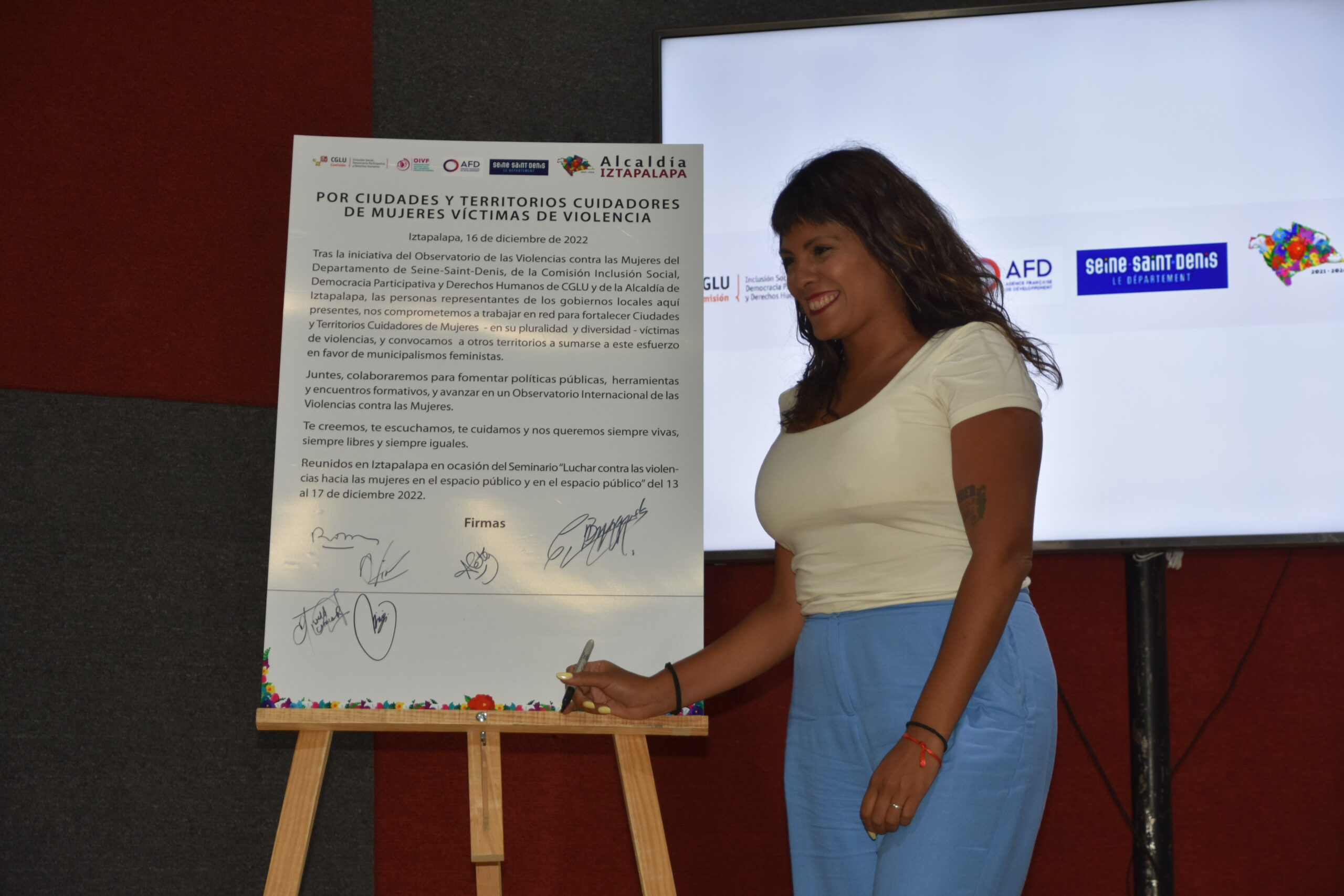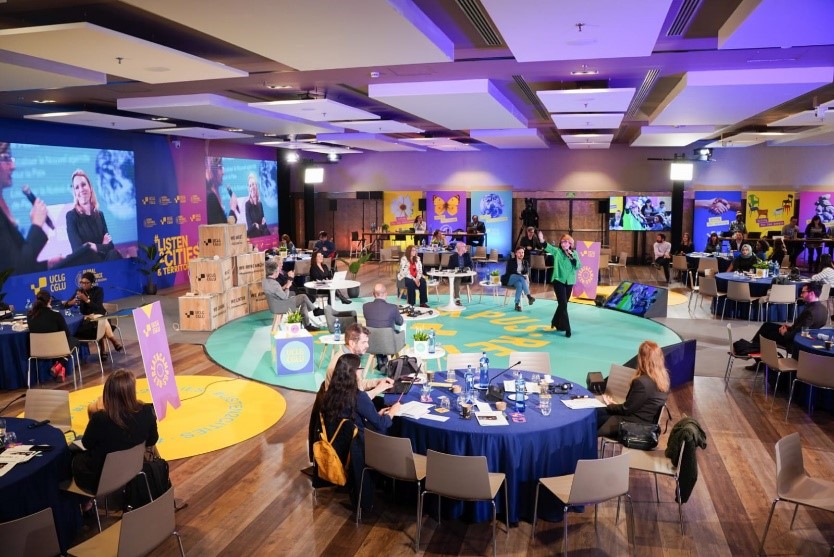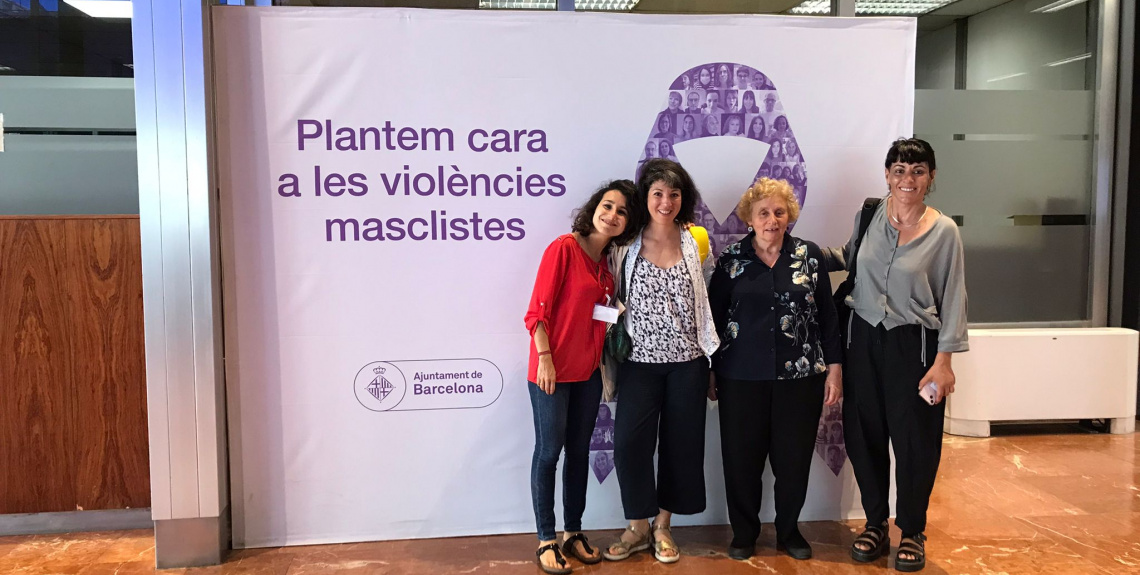The International Observatory of Violence against Women: A Commitment to Women’s Rights in Africa
A look back at the seminar entitled "Territories protecting women victims of violence", organised by the International Observatory on Violence against Women, the Inclusion, Citizenship and Human Rights Commission and the City of Banjul.
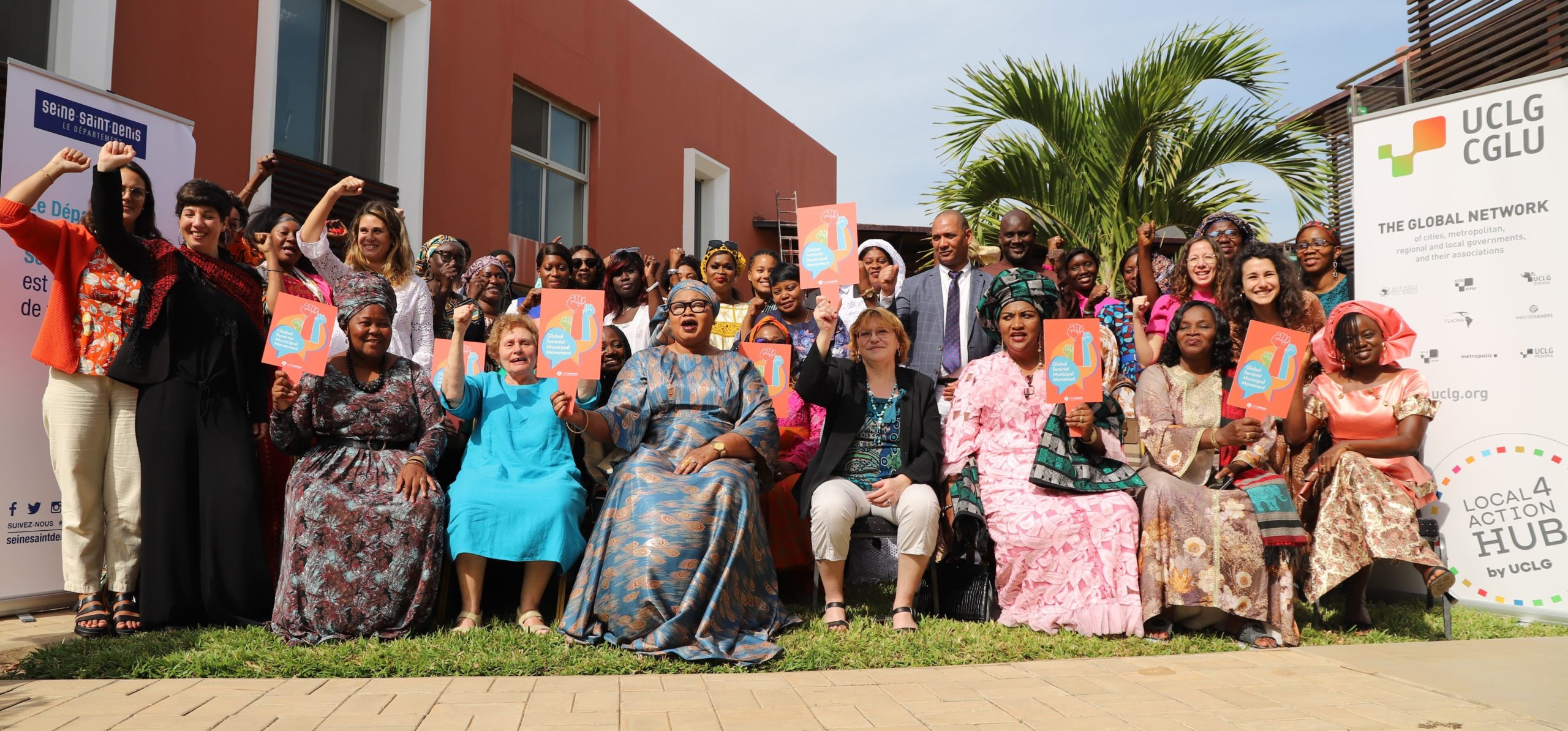


From January 22nd to 24th, 2024, the second regional seminar of the program "For Territories protecting Women victims of violence," funded by the French Development Agency, took place in Banjul, Gambia. Organized by the International Observatory of Violence against Women, the Commission for Inclusion, Citizen Participation and Human Rights of United Cities and Local Governments (UCLG), and the City of Banjul, the event brought together 12 local governments from Africa, as well as Gambian civil society organizations and experts. The week-long event concluded with the adhesion of 12 new African local authorities to the International Observatory of Violence against Women's global network.
Following the success of our first seminar in Iztapalapa, Mexico, which focused on the Latin American context, we are now turning our attention to Africa. This second edition of the seminar aims to understand the reality of violence against women in the African context, to identify local needs in terms of caring for victims and to encourage political dialogue for concerted action at local level. The seminar focused on four main themes: female genital mutilation, forced and early marriages, sexual violence against girls and violence in situations of armed conflict.
The city of Banjul hosted the event, which was chaired by Mayor Rohey Malick Lowe, who is also President of the Réseau des Femmes Élues Locales d’Afrique (REFELA). REFELA is a network that brings together women mayors and local elected representatives across Africa to promote gender-sensitive local governance. As part of this initiative, the mayor of Banjul has mobilised several women from her national network in Gambia to work on violence against women.
The Mayor of Banjul, Rohey Malick Lowe, opened the seminar in the presence of Jean-Charles Allard, Chargé d’affaires of the French Embassy in Gambia, Clémence Cazaux, representative of the French Development Agency (AFD), Pascale Labbé, Vice-President of the Seine-Saint-Denis Departmental Council, and Ernestine Ronai, head of the Departmental Observatory on Violence against Women (1).
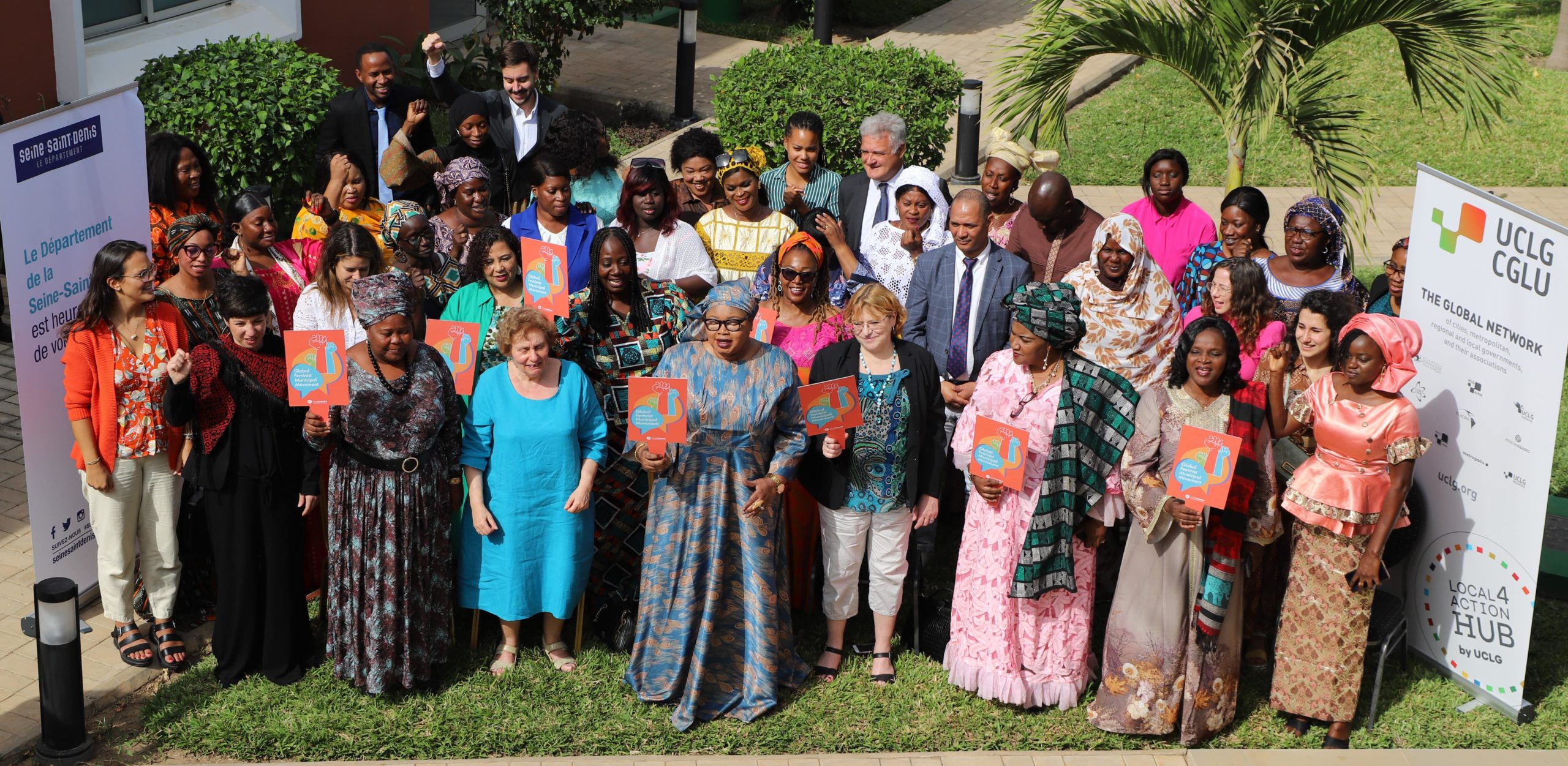

All the participants in the training course, members of the REFELA Gambia network and the organising teams.
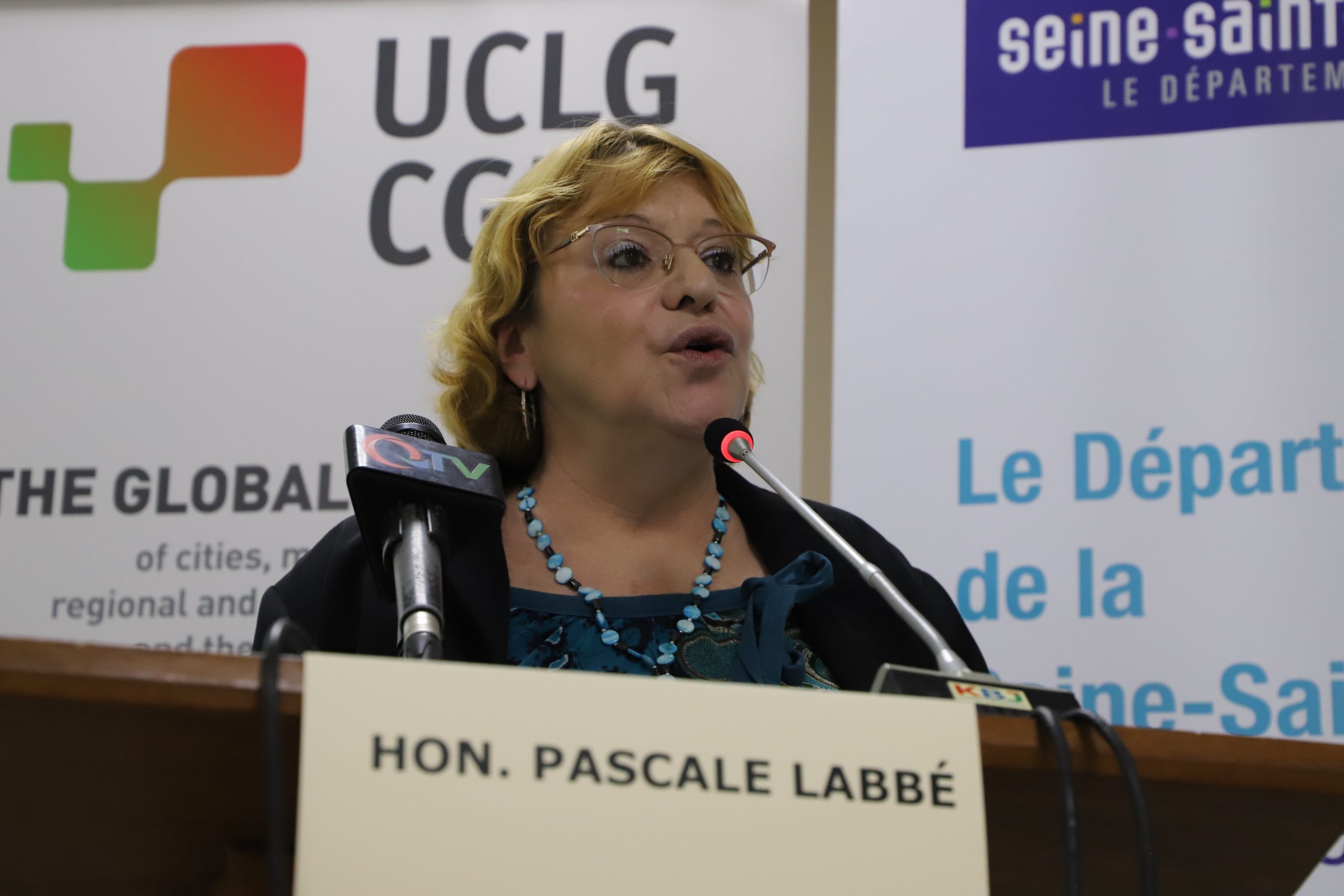

Pascale Labbé, Vice-President of the Seine-Saint-Denis Departmental Council at the opening ceremony
The first theoretical session on the theme “Introduction of Violence against Women at the Local Level,” led by Amélie Videau, Coordinator of the International Observatory of Violence against Women, and Ernestine Ronai, allowed participants to understand the challenges of combating violence against women at the local level. Sharing lessons learned from the Iztapalapa seminar in Mexico taught best practices, including Utopias.
To learn more about Utopias: click here.
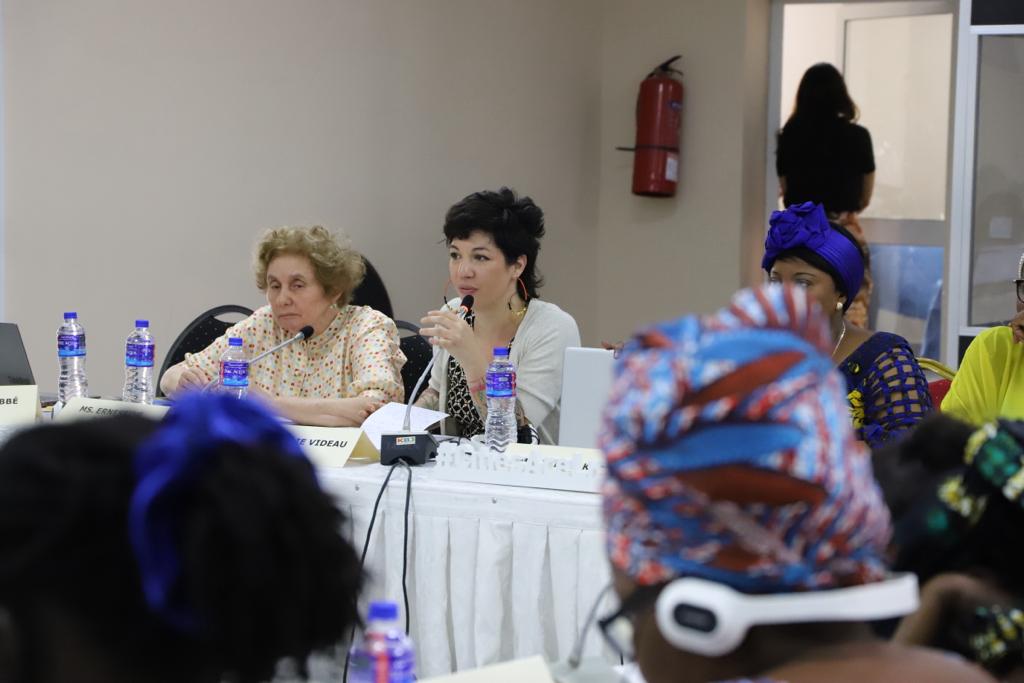

Ernestine Ronai, Head of the Seine-Saint-Denis Observatory on Violence against Women, and Amélie Videau, Coordinator of the International Observatory on Violence against Women.
- Preventing Female Genital Mutilation: Sharing Experiences
The first working session continued with a training workshop on the topic of female genital mutilation (FGM). Yvette Kabuo (Socio-legal-economic coordinator project NGENGO, Central African Republic) shared some tools for identifying and assisting victims of female genital mutilation. Based on her experience in the Central African Republic, she advocated for the establishment of a local “One-Stop Counter” within hospitals or health centers to receive FGM victims and coordinate their care. This one-stop counter offers a range of repair services, including medical, physical, psychological, and socio-economic interventions tailored to the specific needs of victims. She also emphasized the importance of providing associated services within hospitals, such as pediatrics, gynecology, and psychiatry, to ensure holistic and integrated care for FGM victims.
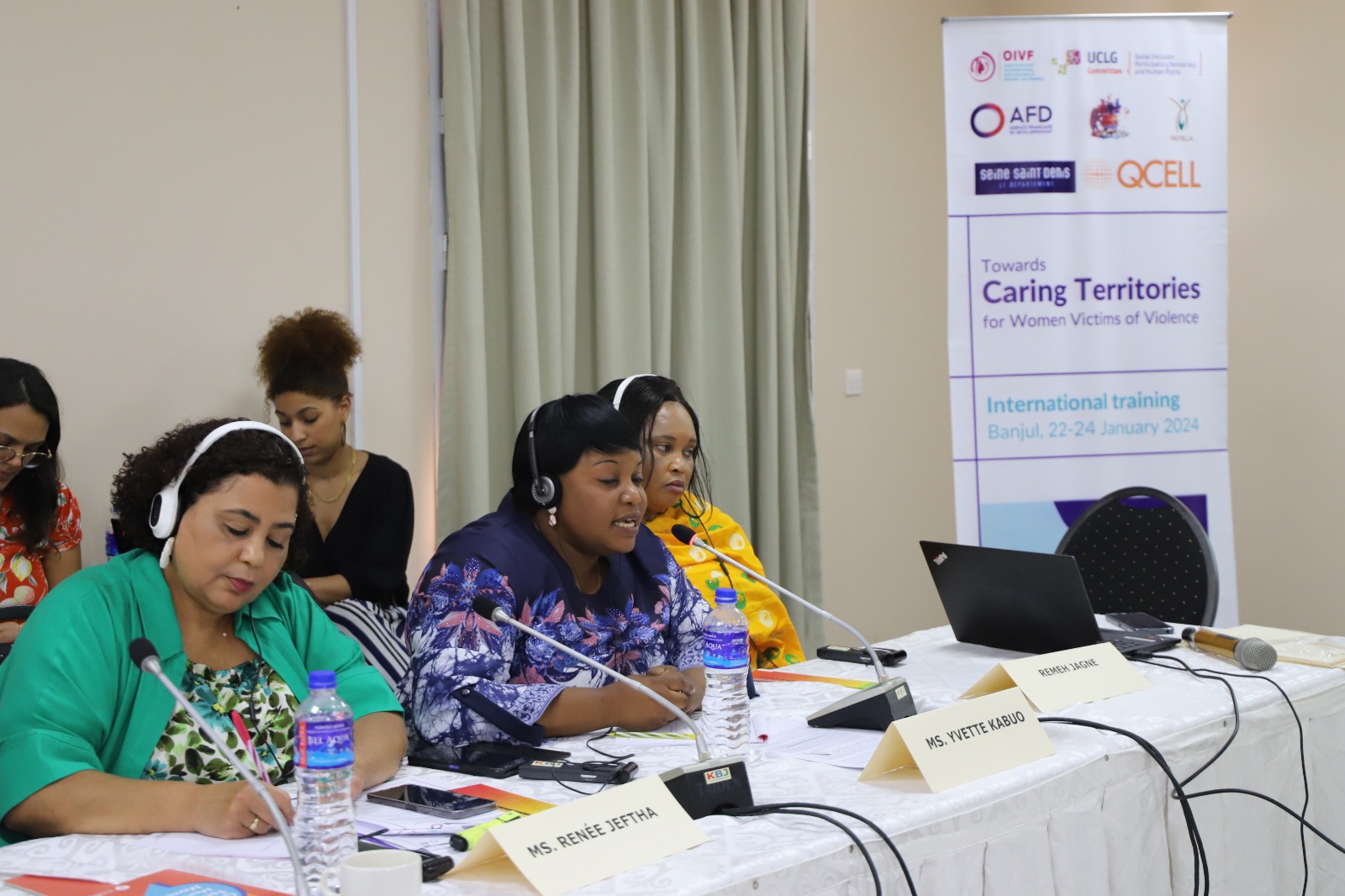

Yvette Kabuo Tshongo, Socio-Legal and Economic Coordinator, NGENGO project, Central African Republic
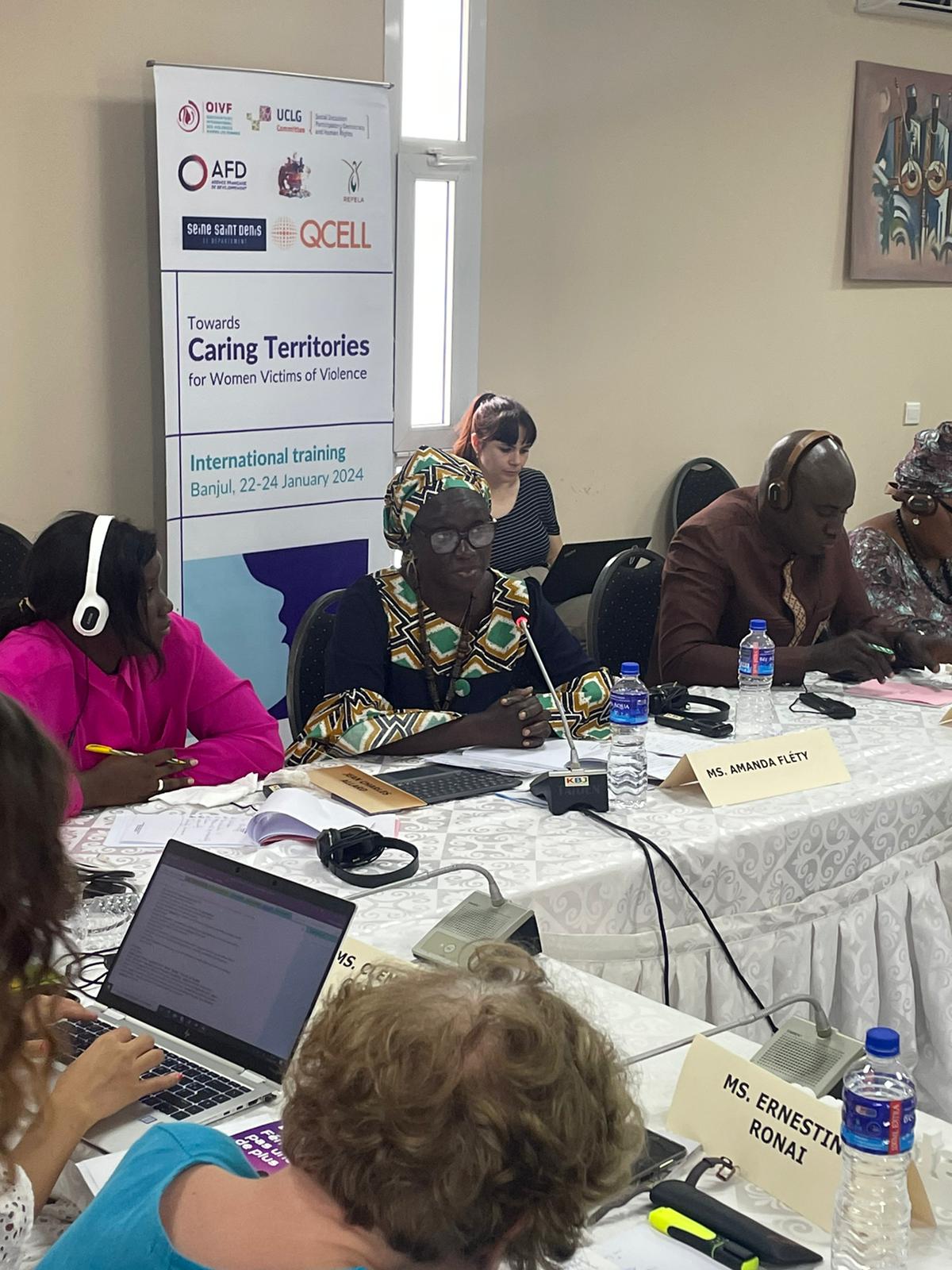

Léonie Gomis, Platform of Women for Peace in Casamance, Senegal
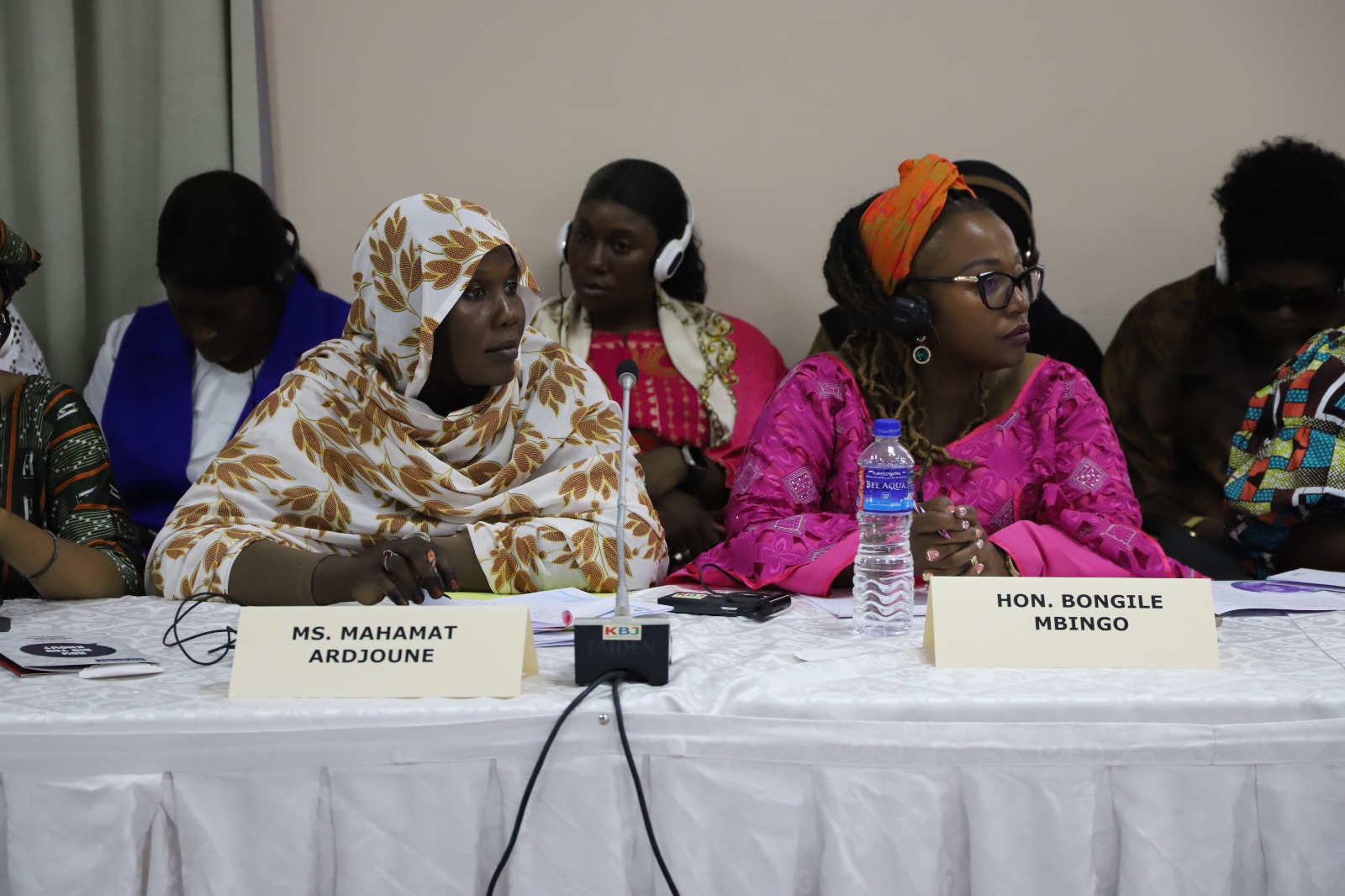

Participants from Chad and Eswatini at the introductory session
Several testimonies and observations enriched the understanding of realities on the ground, notably through the intervention of civil society members such as Léonie Gomis (Women’s Platform for Peace in Casamance, Senegal). She exposed how excisers develop strategies to circumvent laws prohibiting FGM, operating clandestinely and changing their methods. She mentioned that excisions are sometimes practiced from infancy, highlighting the evolution of practices to evade legal repression. The phenomenon of extraterritoriality, where individuals cross borders to practice FGM in countries with less restrictive legislation, is also prevalent and calls for vigilance from local governments.
Ernestine Ronai testified to the experience in Seine-Saint-Denis in the fight against FGM. FGM is punishable by law in France, and this prohibition applies even in cases where the mutilation was performed abroad but the victim resides in France. Parents can be sentenced to up to 15 years in prison for their involvement. Furthermore, reparations for victims are covered free of charge by social security. Regarding prevention, Seine-Saint-Denis raises awareness among pregnant women in Maternal and Child Protection Centers (PMI) by informing them of signs to watch for. Additionally, she mentioned the importance of reporting cases of mutilation to judicial authorities, as well as prevention among schoolgirls by providing them with information sheets and raising awareness of risks.
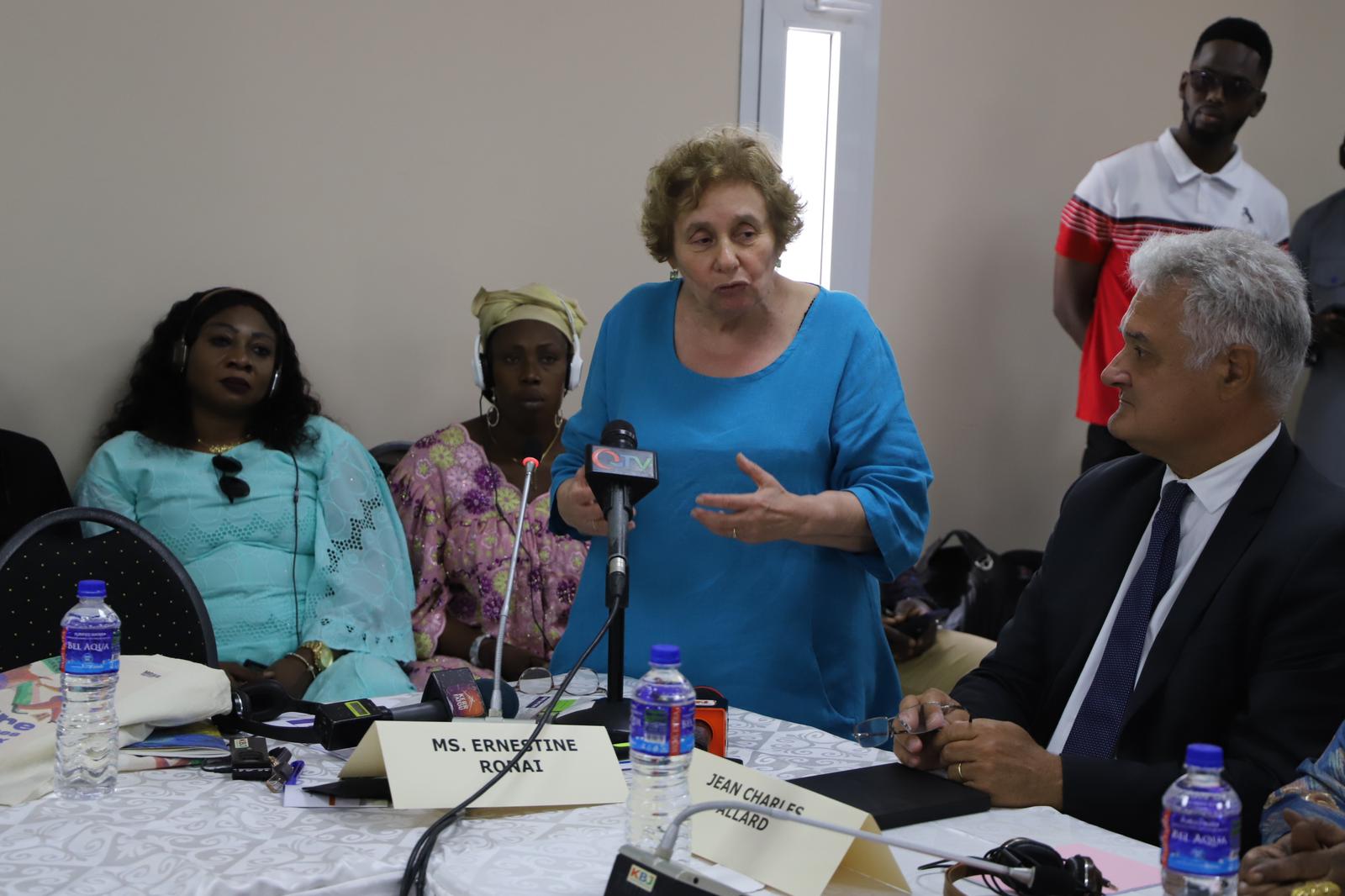

Ernestine Ronai, Head of the Observatoire de Seine Saint Denis at the introductory session
To round off the first day, the participants visited the Centre for Victims of Human Rights Violations in The Gambia during the Dictatorship[2].
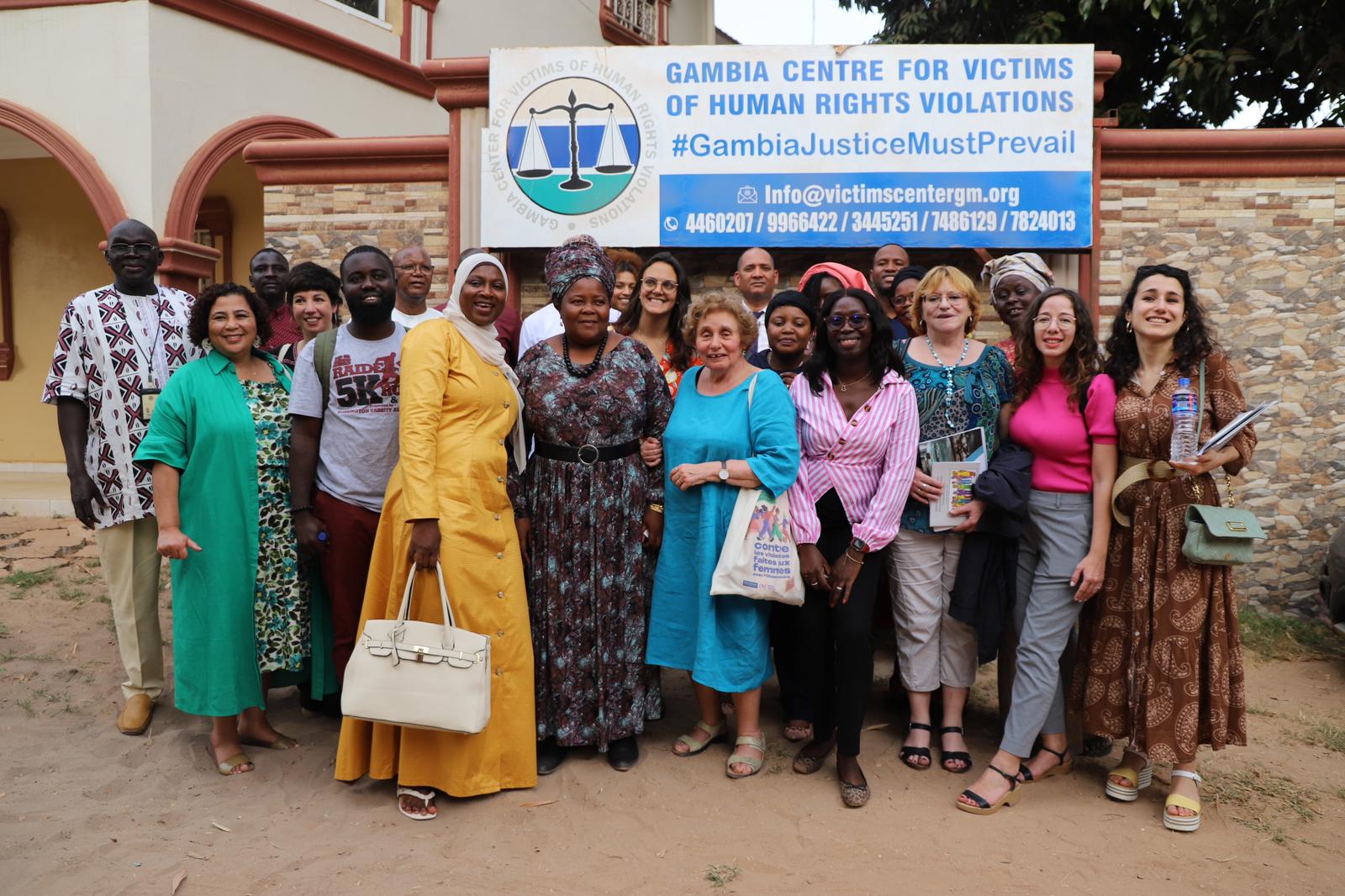

Seminar participants visit the Centre for Victims of Human Rights Violations
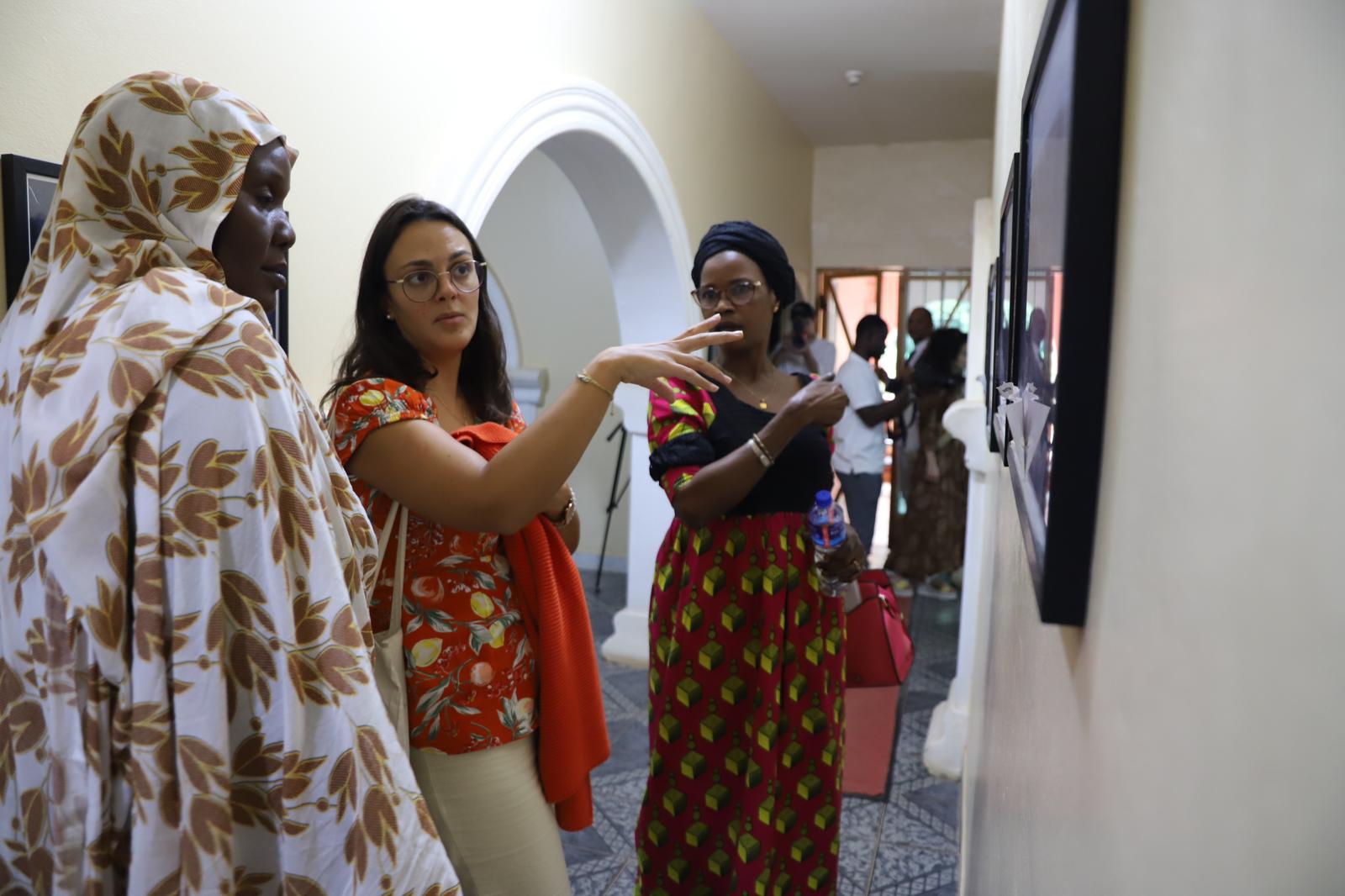

Maira Topall, Project Manager at the Observatoire des violences envers les femmes de Seine-Saint-Denis, and participants
- Forced and early marriages: Gambian tools to prevent violence against women and girls
The discussions began with a number of contributions from Gambian experts, including Anna Jaiteh, a lawyer with the Association of Female Lawyers of the Gambia (FLAG). She analysed the international texts condemning these practices, calling for greater awareness at local and regional level. She stressed that Gambian law provides a solid legal framework, but that the hope of putting an end to these human rights violations lies in education, empowerment and community awareness. The stories continued with testimonies from members of the network of Local Elected Women of Africa (REFELA) in The Gambia, showing the joint efforts to invest in youth and the empowerment of girls.
Phebian Ina Grante Sagnia, a nurse and reproductive health specialist at the Gambian Ministry of Health, presented a tool for raising awareness and preventing forced and early marriages, as well as FGM. The “Funneh Board Game” is a fun, educational tool developed in the Gambia, designed to break down taboos and prejudices about issues relating to violence against women, particularly in terms of sexual and reproductive health.
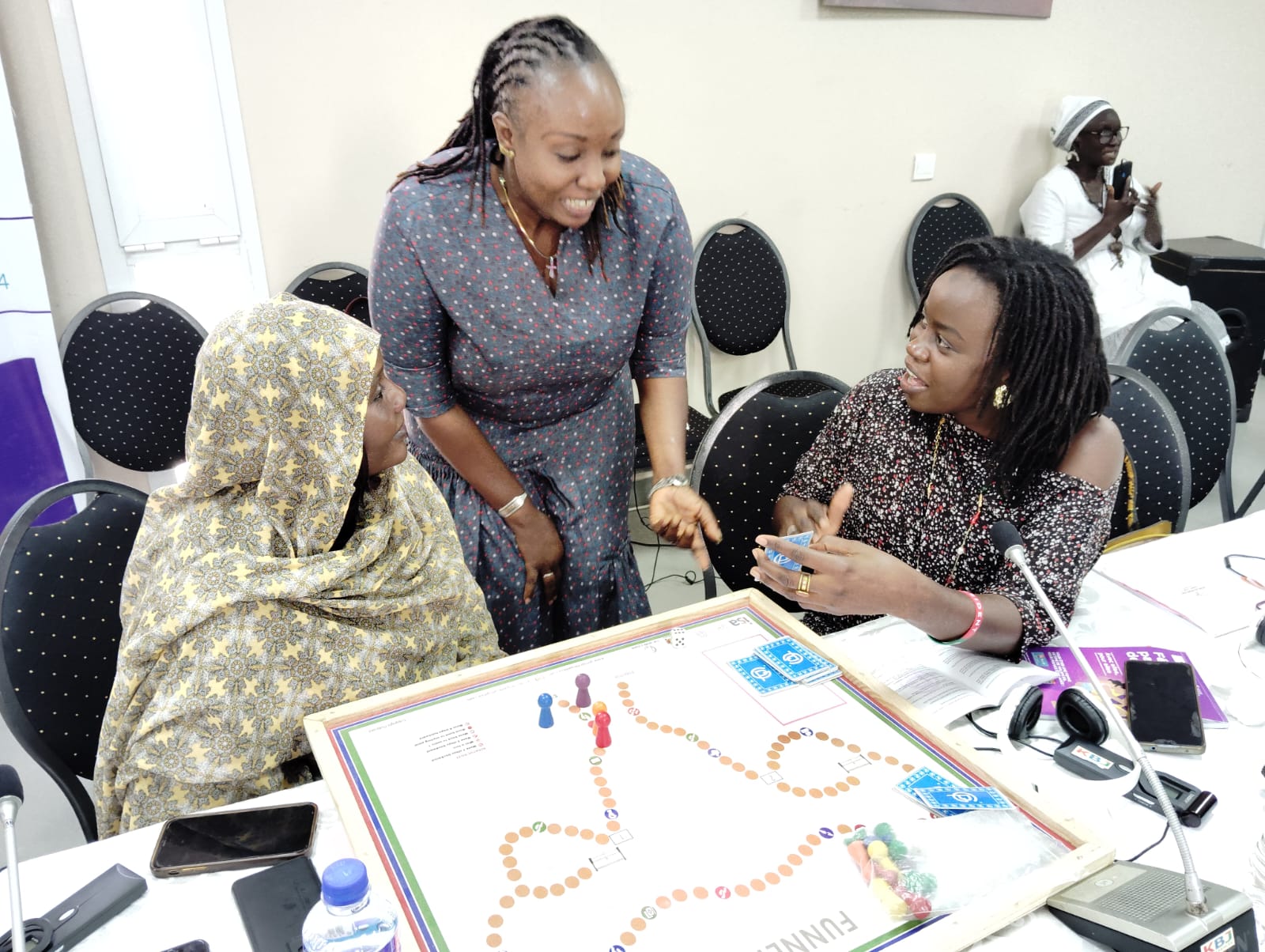

Phebian Ina Grante Sagnia presenting the board game
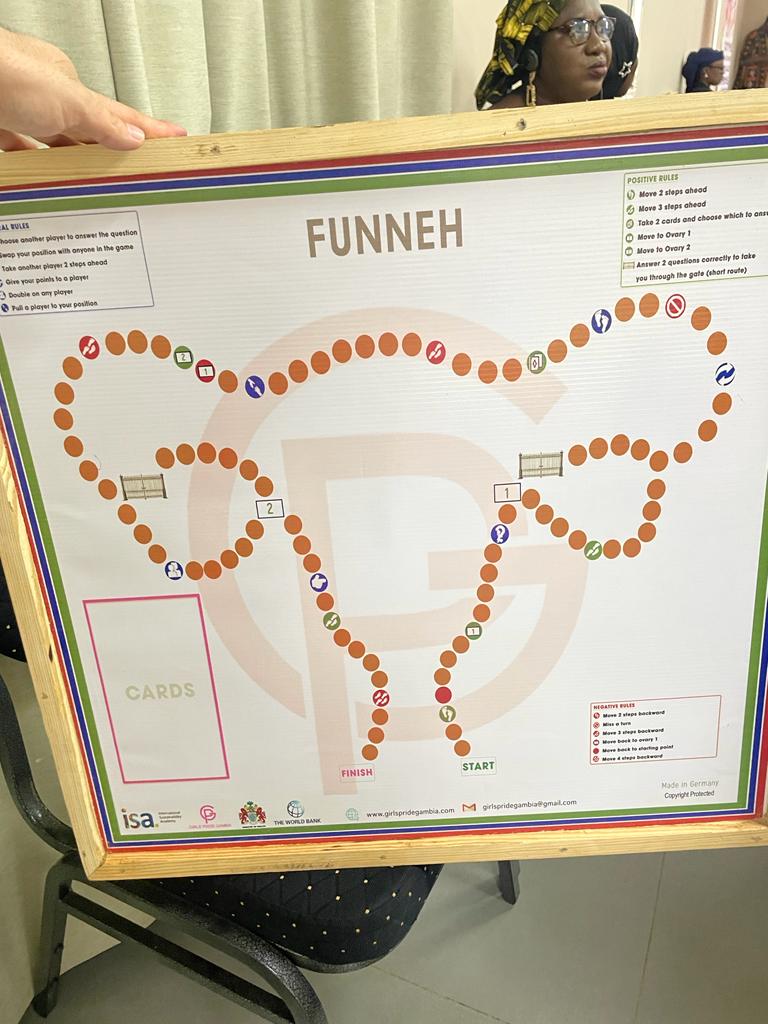

The Funneh Game board game
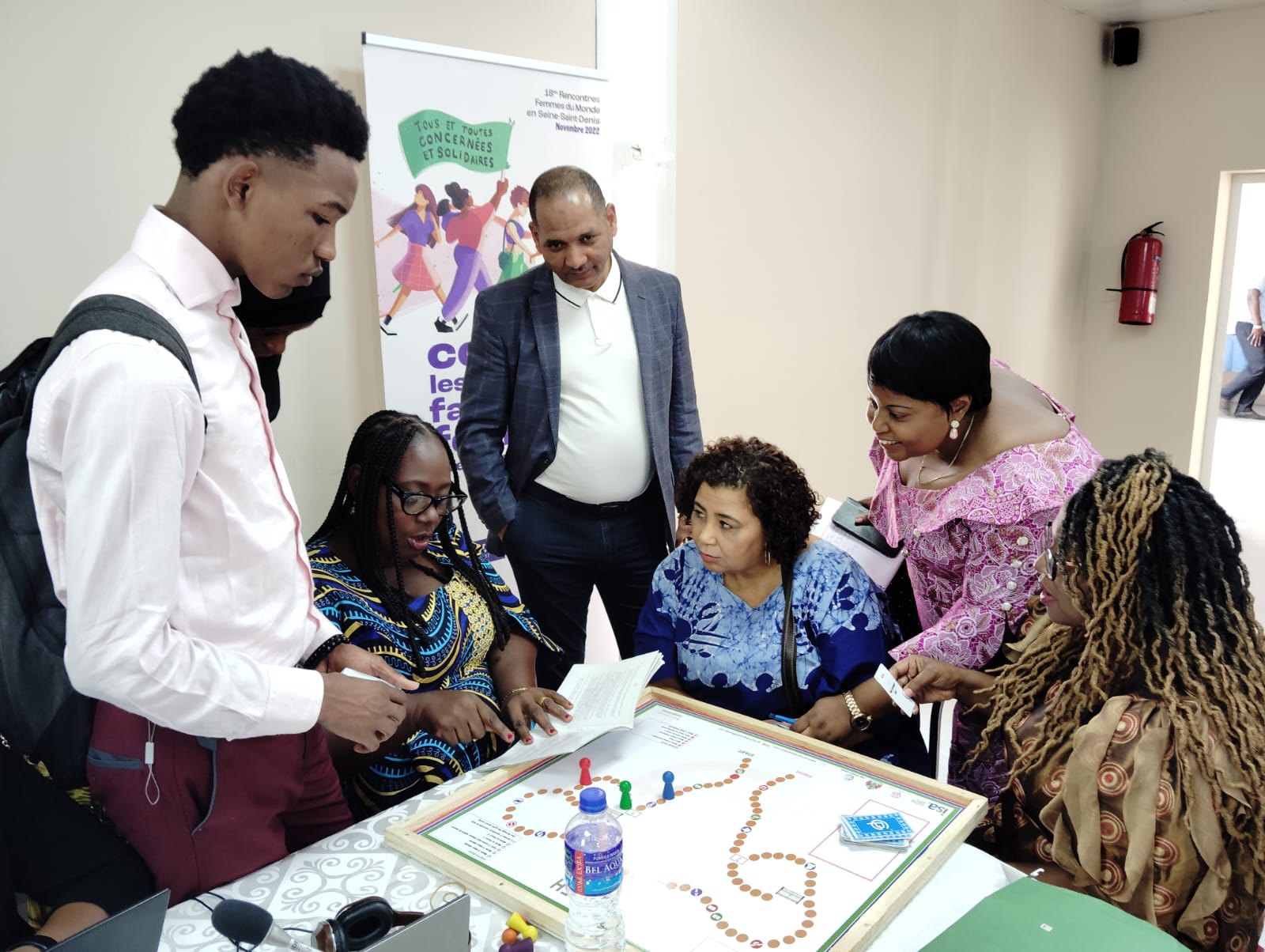

Participants playing the board game
The participants stressed that, despite the existence of legal frameworks in many countries, the implementation of these laws remains a major obstacle to the protection of women’s and girls’ rights. The difficulty of working with religious representatives was also mentioned.
Despite cultural differences, the same cry of resistance resonates: the urgent need to act, to raise awareness and to protect the fundamental rights of girls and women. The practical workshops raised awareness of the obstacles facing our participants. Many proposals emerged for overcoming these obstacles, highlighting the crucial importance of raising awareness at all levels, whether in rural communities, at local level or within schools. However, it is important to emphasise that raising awareness often comes up against a lack of resources, particularly financial resources.
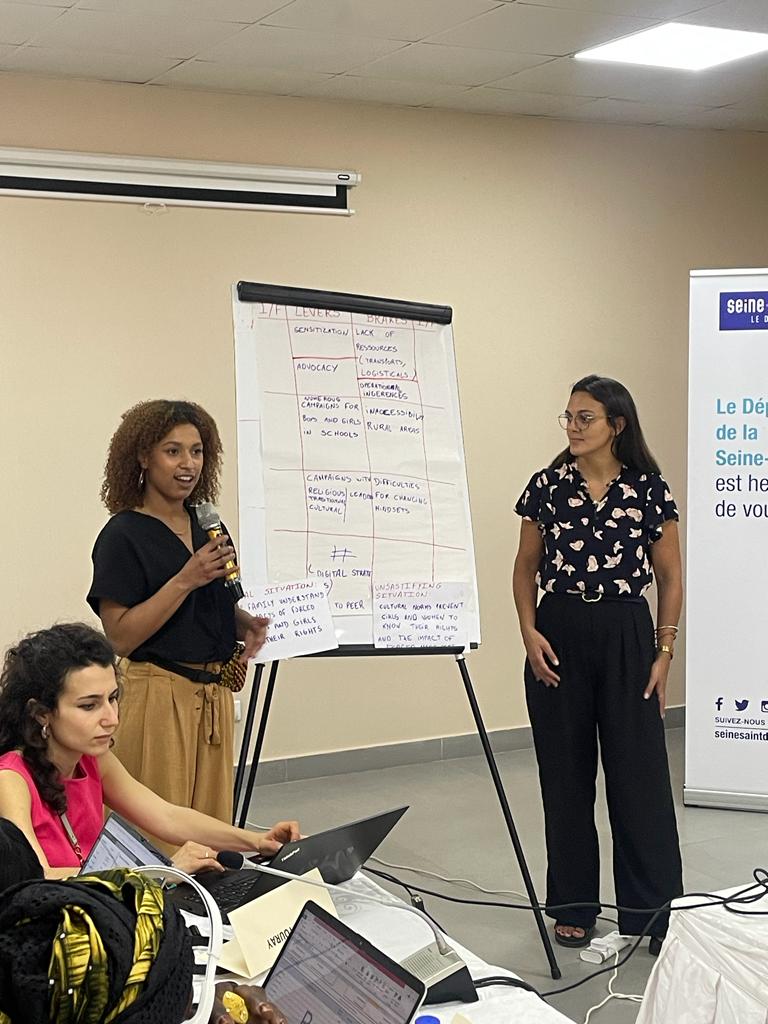

Maéva Bonnet and Maira Topall, International Project Officers at the Seine-Saint-Denis Observatory on Violence against Women, presenting the results of the workshop on forced marriages.
- Strategies to combat sexual violence in wartime and against girls
Echoing and showing solidarity with our Palestinian partners, it was important to address the issue of sexual violence in wartime. This reality, which is also rooted in the African context, requires particular attention and concrete action to guarantee the safety and protection of girls and women in these situations, where they are the most vulnerable. Although our Palestinian partners were unable to attend the seminar in person, we were able to broadcast a video of Mayssoun Dawoud, Head of the Observatory for Violence against Women in Jenin, Palestine, at the opening ceremony.
To find out more about the situation in Jenin, click here.
Drawing on her experience in the Central African Republic and the Democratic Republic of Congo, Yvette Kabuo presented the problems of wartime rape. She highlighted the destructive impact of this sexual violence on both women and communities. She also highlighted the long-term repercussions of this violence, including on future generations, emphasising how the trauma experienced by victims can be perpetuated and affect the mental and emotional health of children and young adults who have grown up in a context of armed conflict. She also highlighted the reproduction of violence, particularly domestic violence, in contexts of armed conflict, explaining that victims, who are often traumatised, reproduce this violence in their homes. This dynamic leads to a significant increase in domestic violence during armed conflicts and persists even after they have ended.
In a second theoretical session, Ernestine Ronai shared her expertise drawn from her experience with the Independent Commission on Sexual Violence against Children (CIVISE, France). She highlighted the lack of recognition of the voice of child victims of sexual violence, which is often downplayed and not listened to. She highlighted the prevailing denial in our societies of these realities, despite the alarming statistics: in France, 5.5 million people claim to have been victims of sexual violence during their childhood, i.e. one child every three minutes.
Ernestine Ronai also highlighted the obstacles to access to justice for victims, underlining the shortcomings of the judicial process, characterised by a high rate of dismissals (74%) and a low proportion of convictions (only 7%). She also described the associated psychotraumatic trauma, such as traumatic amnesia, which can persist throughout victims’ adult lives.
The participants had the opportunity to explore all the issues raised during the seminar through an advocacy workshop. In groups, they debated concrete proposals either within a town council, a national assembly or an international session at the UN. The discussions revealed that the participants were able to incorporate the good practice and tools discussed (emergency centre, dialogue with community leaders to raise awareness in rural communities, etc.).
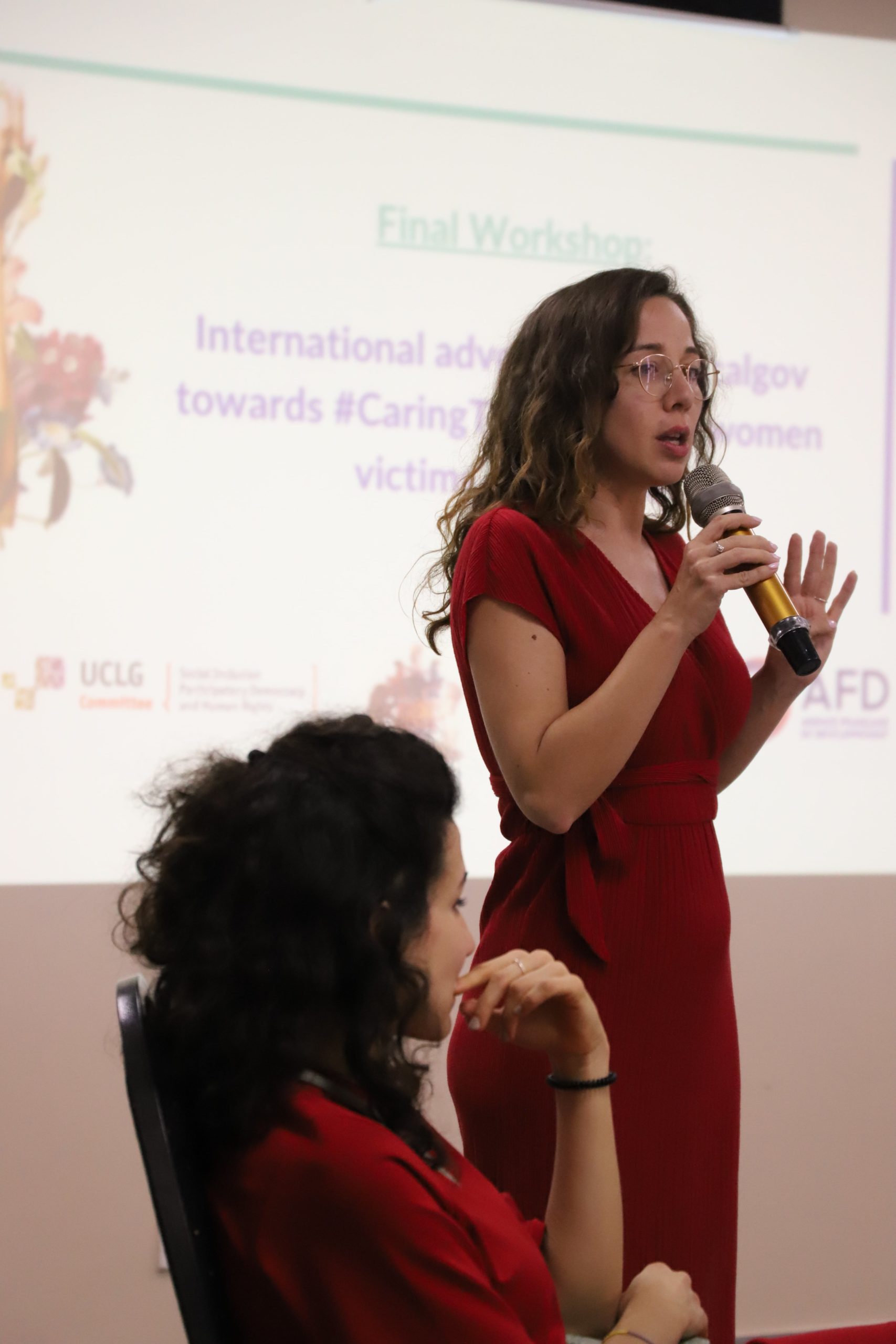

Amanda Fléty Martínez, Coordinator of the Social Inclusion, Participatory Democracy and Human Rights Committee of United Cities and Local Governments (UCLG-ICLHRD) and Benedetta Cosco, ICLHRD Project Officer, presenting the instructions for the advocacy workshop.
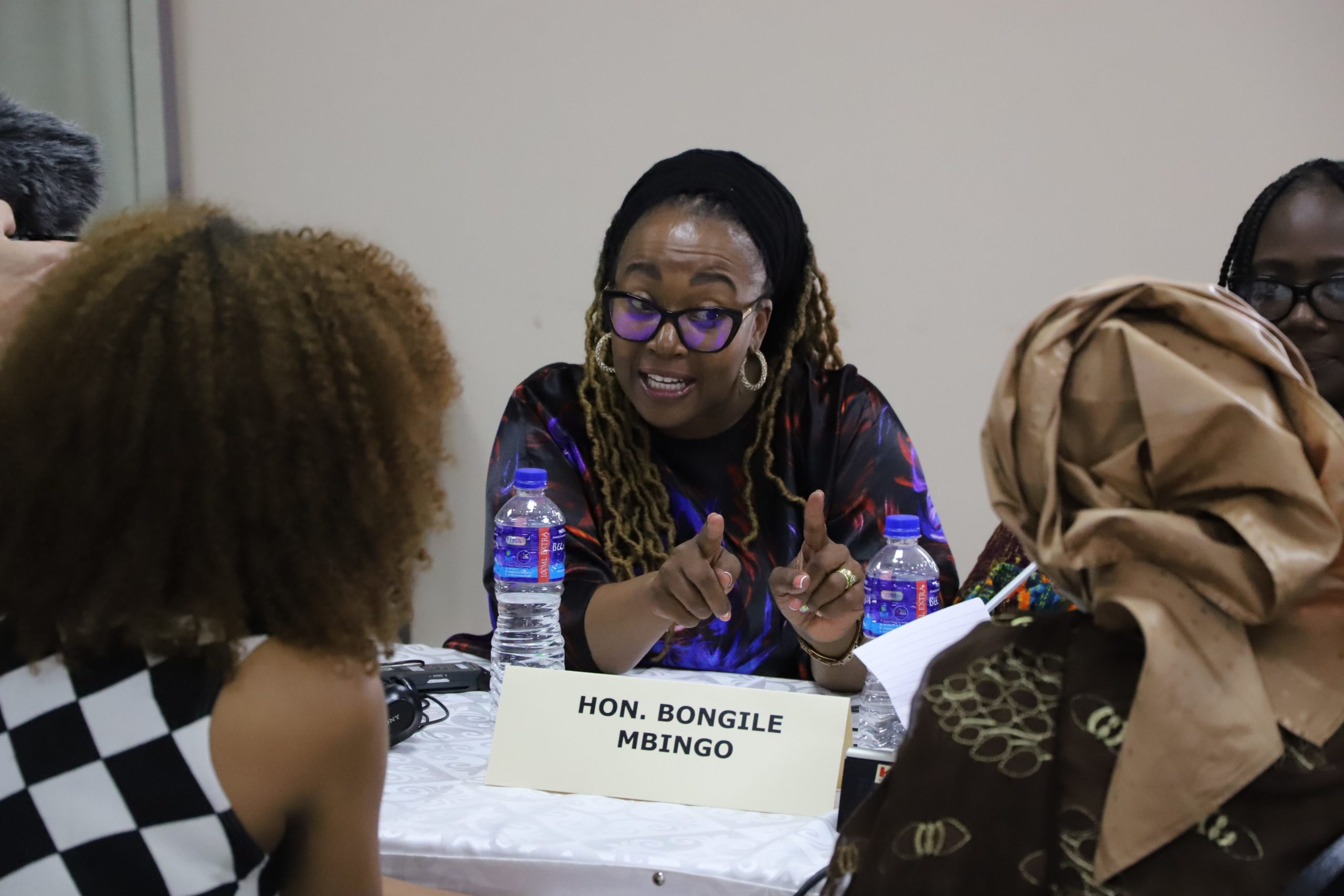

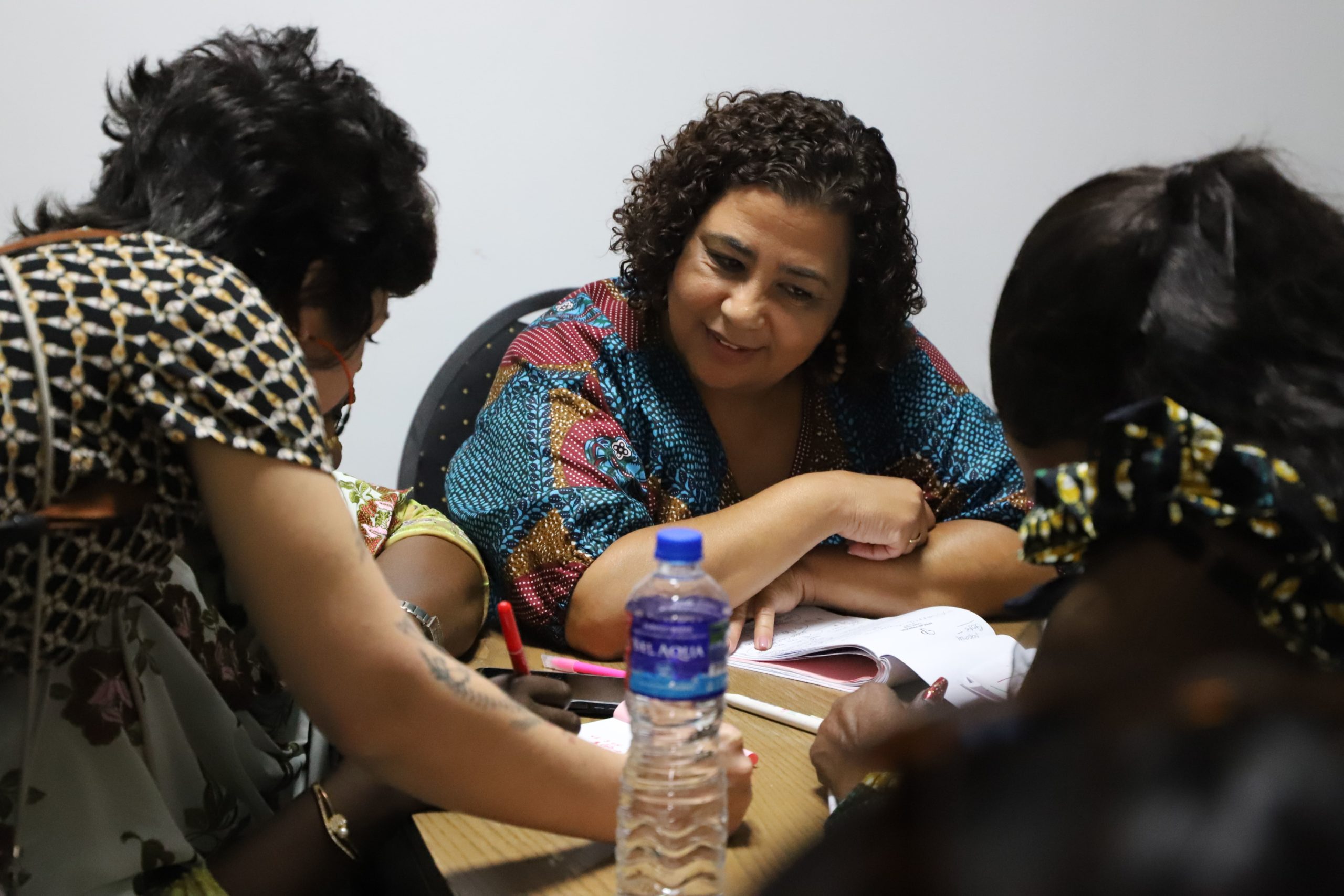

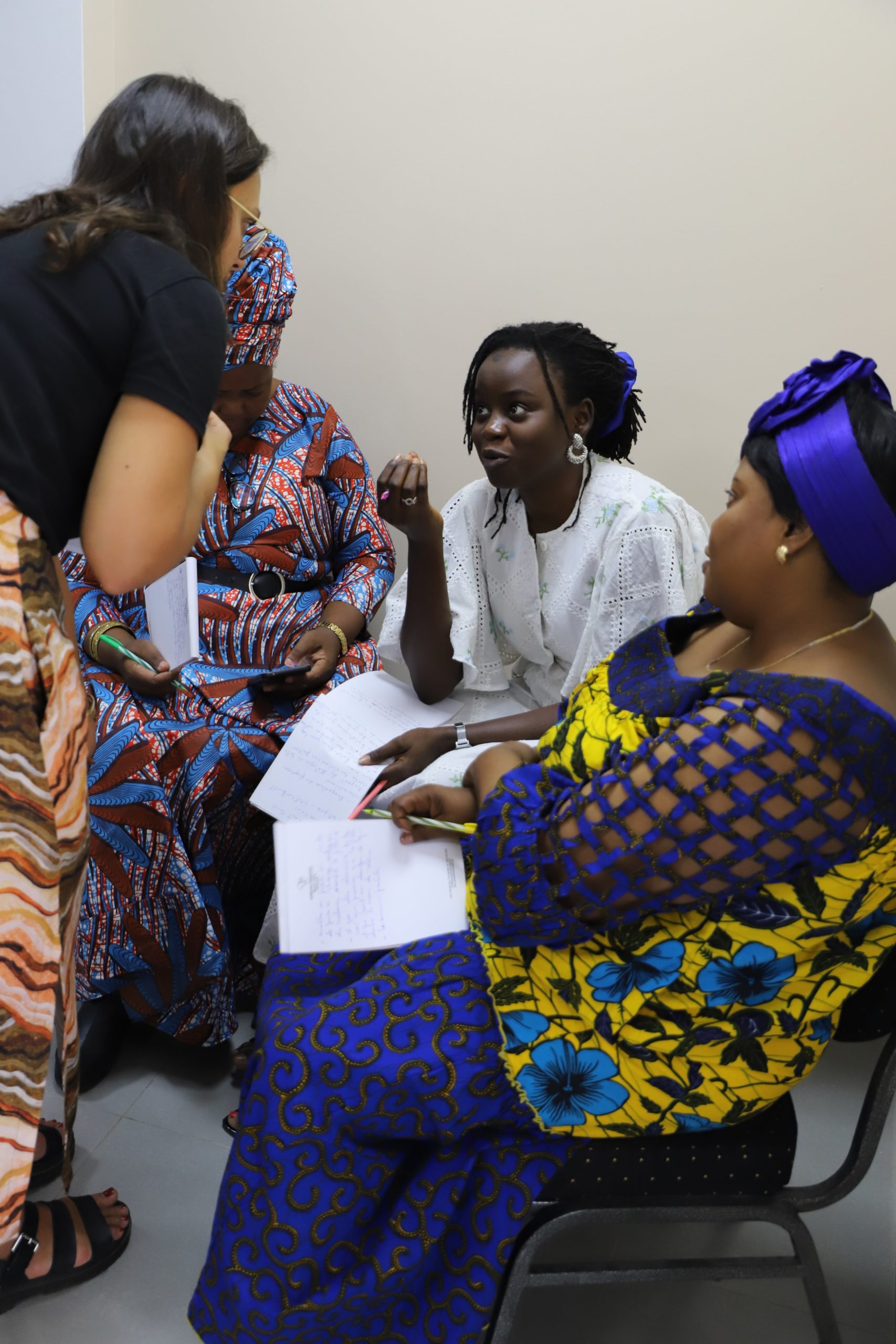

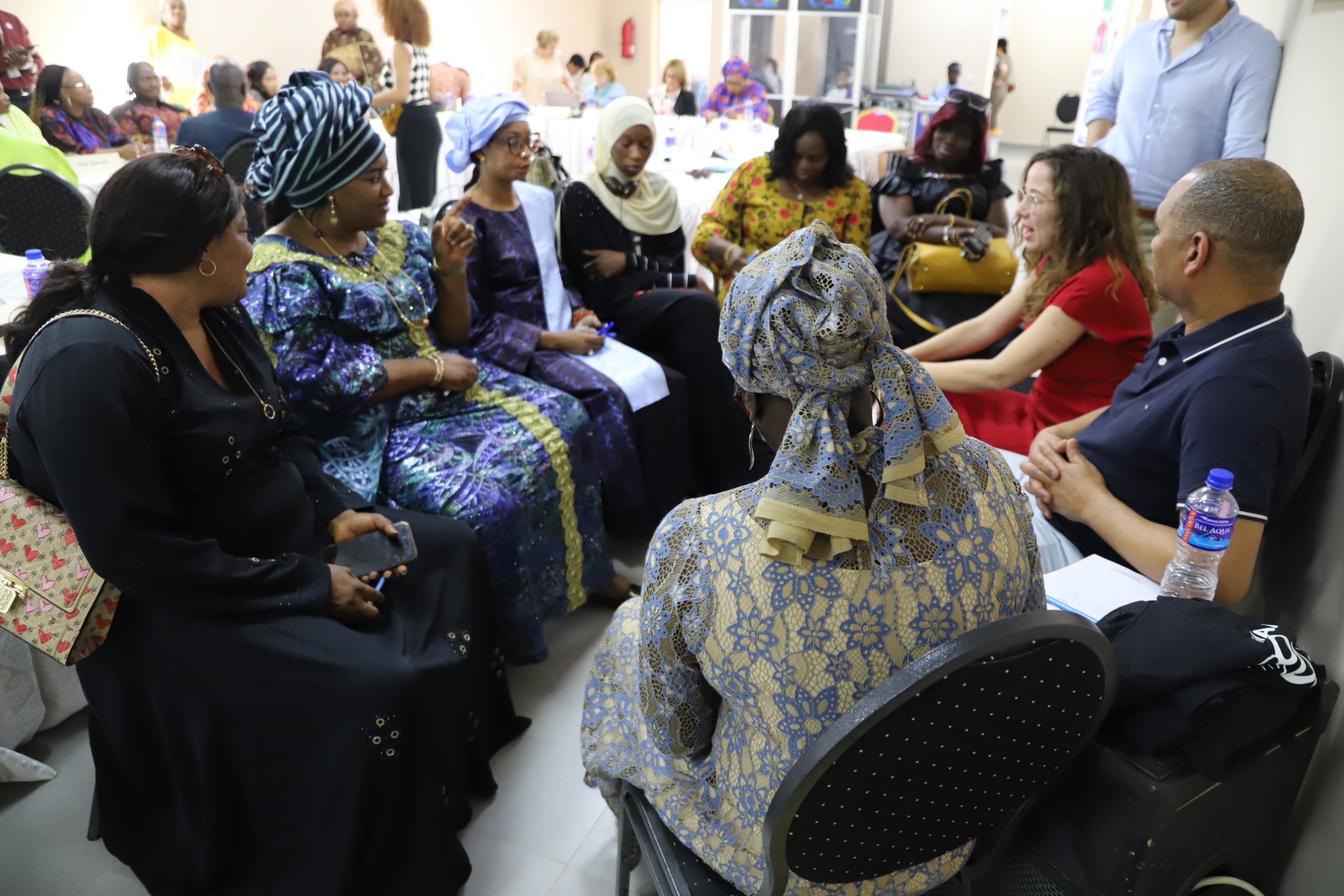

The week ended with the participants endorsing the Banjul Declaration, demonstrating their commitment to continuing the fight at regional and international level.




Useful documents and links
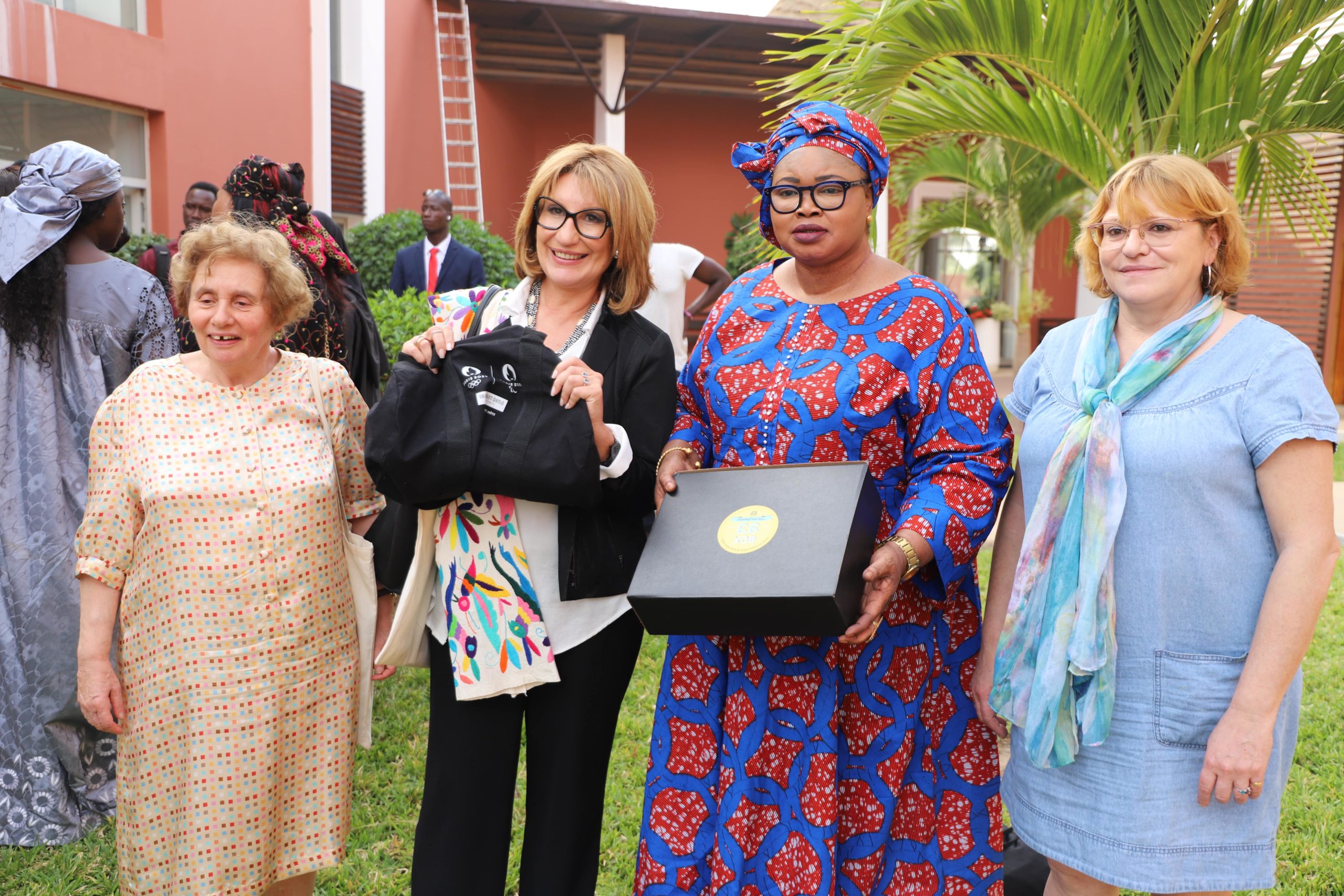

Ernestine Ronai; Emilia Saiz, Secretary General of UCLG; Rohey Malick Lowe, Mayor of Banjul; and Pascale Labbé, Vice-President of the Seine-Saint-Denis Departmental Council at the closing ceremony.
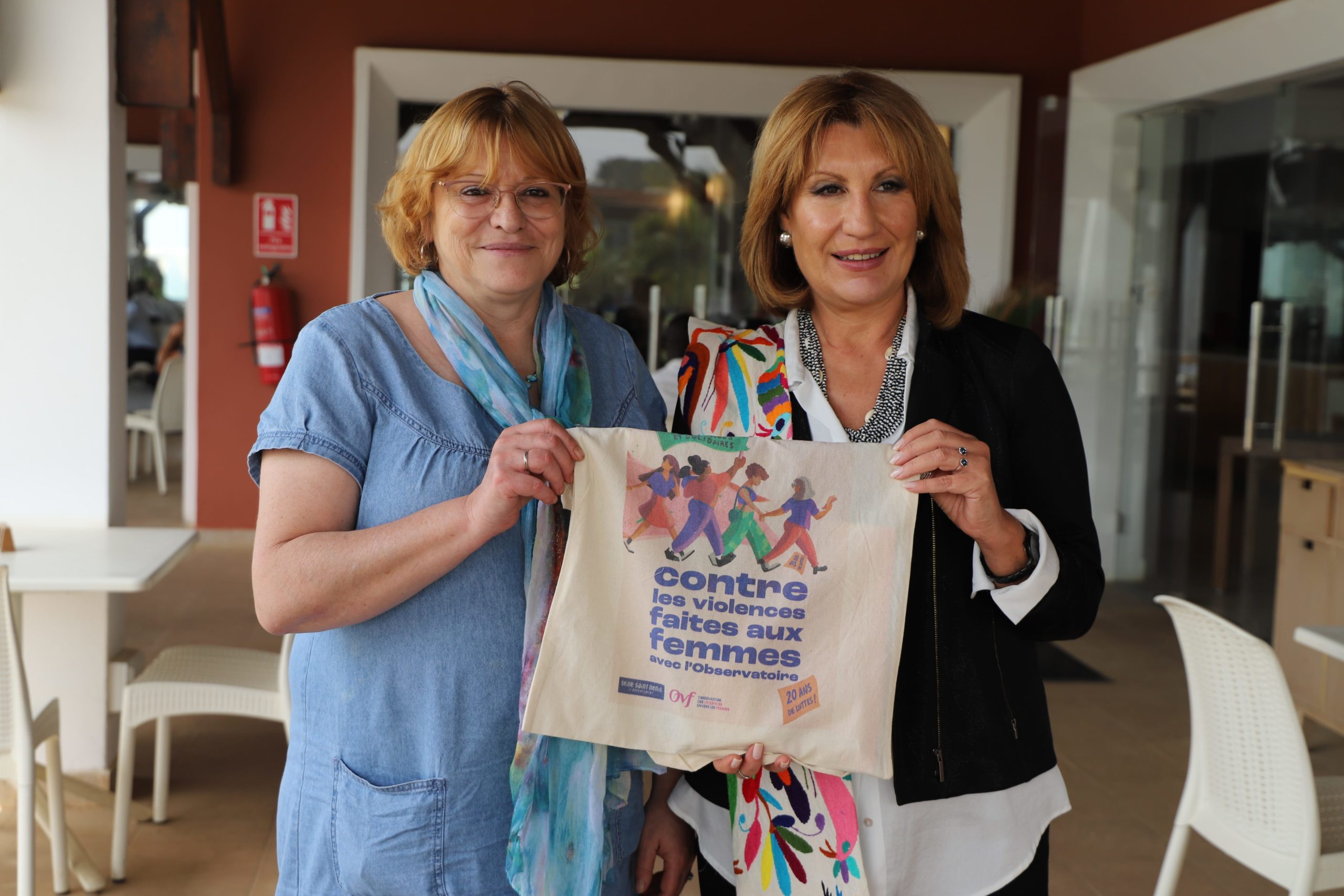

Emilia Saiz, Secretary General of UCLG and Pascale Labbé, Vice-President of the Seine-Saint-Denis Departmental Council at the closing ceremony
(1) Ernestine was accompanied by the team from the Seine-Saint-Denis Departmental Observatory on Violence against Women, including Amélie Videau, Coordinator of the International Observatory on Violence against Women, Maira Topall, International Projects Officer at the Observatory, Maéva Bonnet, International Projects Officer at the Observatory, and Moumtaez Benmabrouk, Project Officer at the Europe International Department of the Seine-Saint-Denis Departmental Council.
[2] The period of dictatorship in Gambia, under the reign of Yahya Jammeh from 1994 to 2017, was marked by serious human rights violations, political repression and contested elections.
Observatory on Violence against Women of Seine Saint Denis (Seine-Saint-Denis)
CGLU (Barcelone)
Palestine
Comores




As part of the program “Territories protecting women victims of violence,” the Observatoire international des violences...
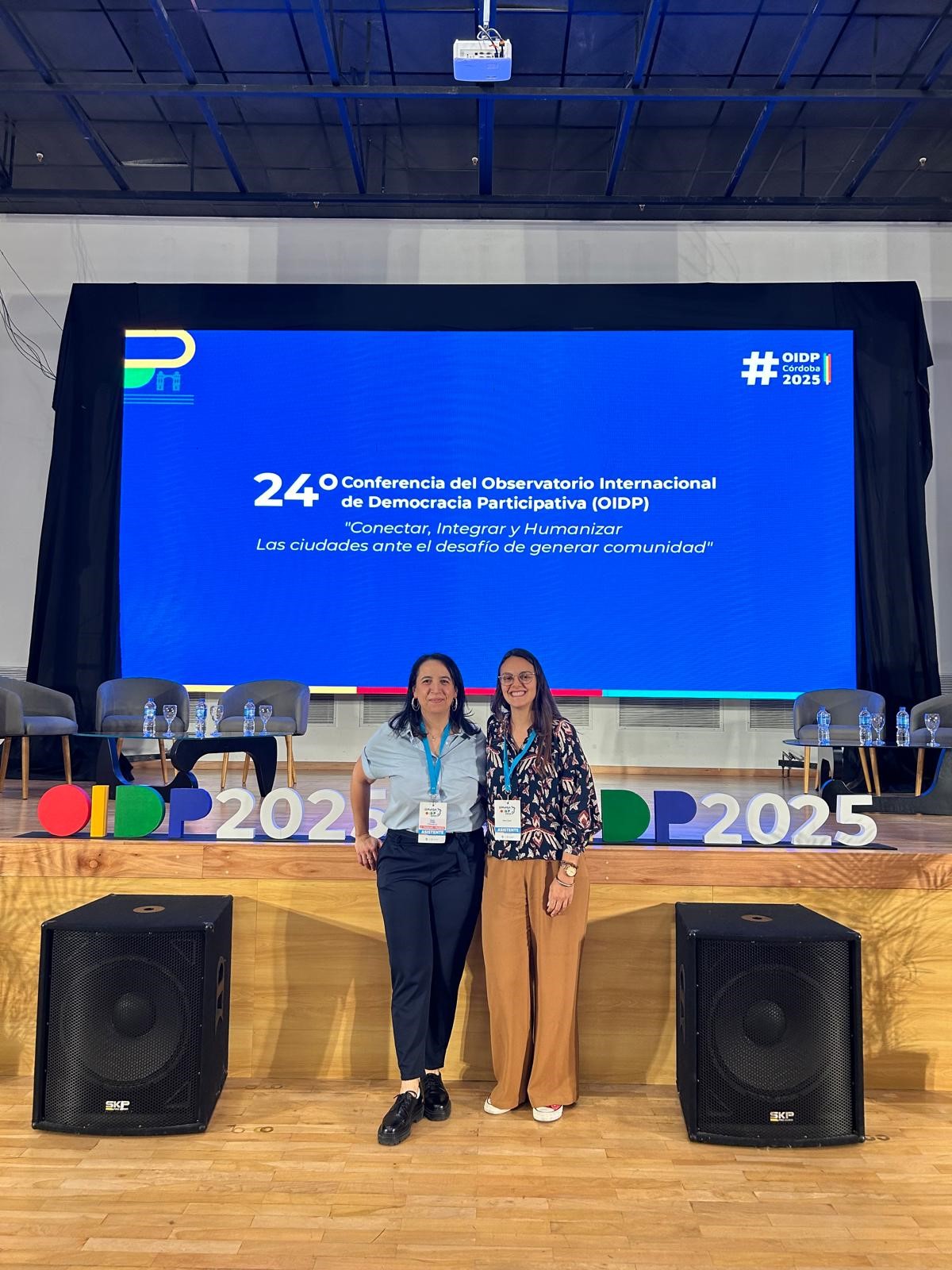

A delegation from Seine-Saint-Denis attended the 24th Conference of the OIDP held in Córdoba in May.
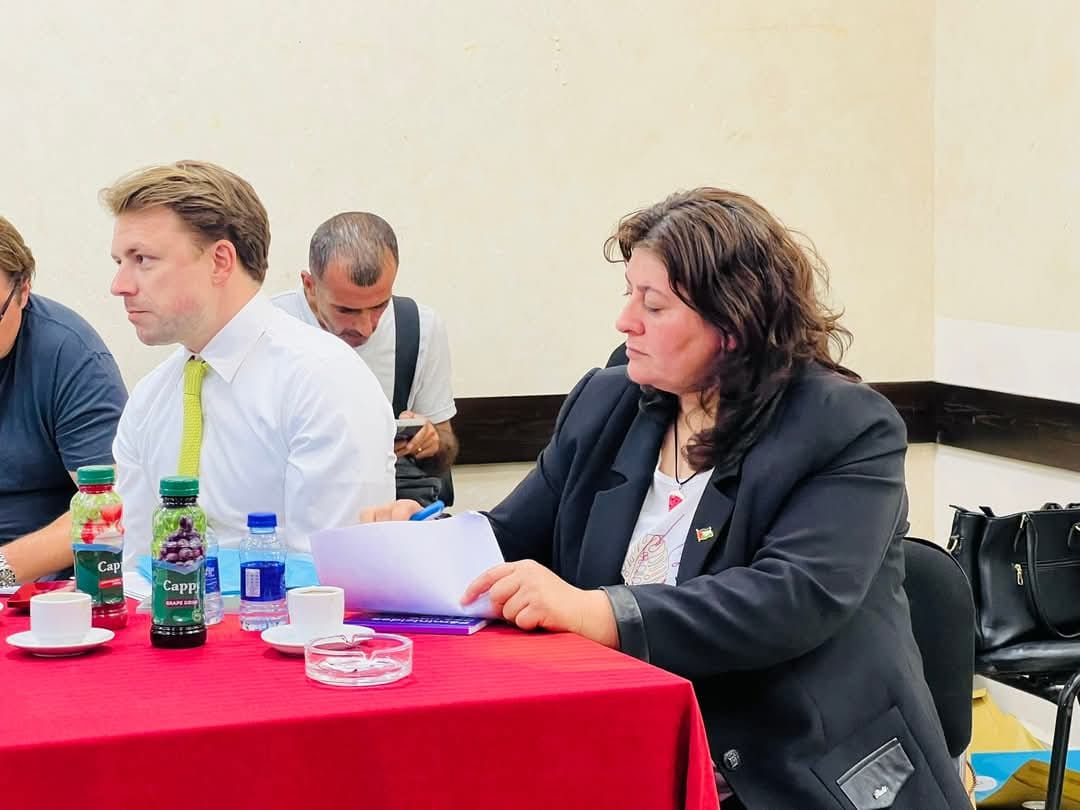

During our meeting on June 11, 2025, Mayssoun Dawoud, head of the Observatory on Violence Against Women in Jenin, shared the...
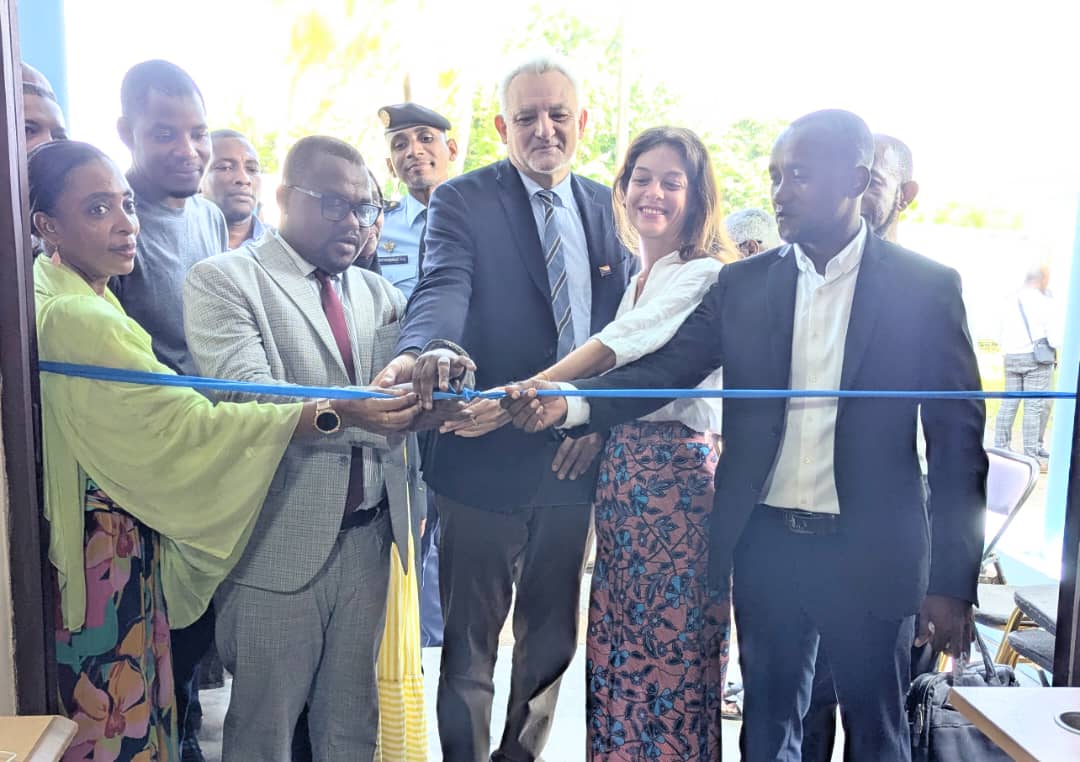

After a challenging year in 2024—marked by the election of a new governor for the Autonomous Island of Ngazidja and a cholera...
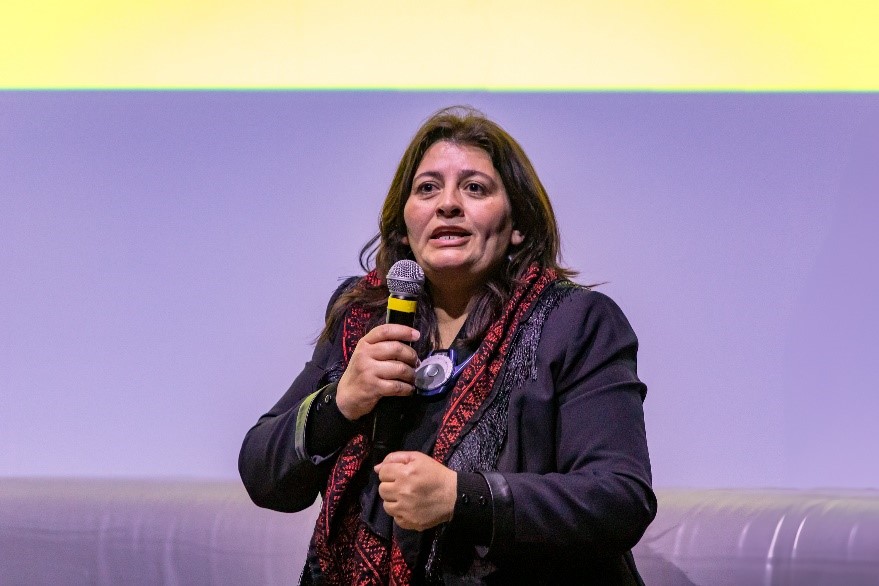

For over a month, the refugee camp of Jenin in the West Bank has been under Israeli siege. The humanitarian situation is...











On the occasion of the International Day of Zero Tolerance for Female Genital Mutilation (FGM), it is crucial to highlight that...
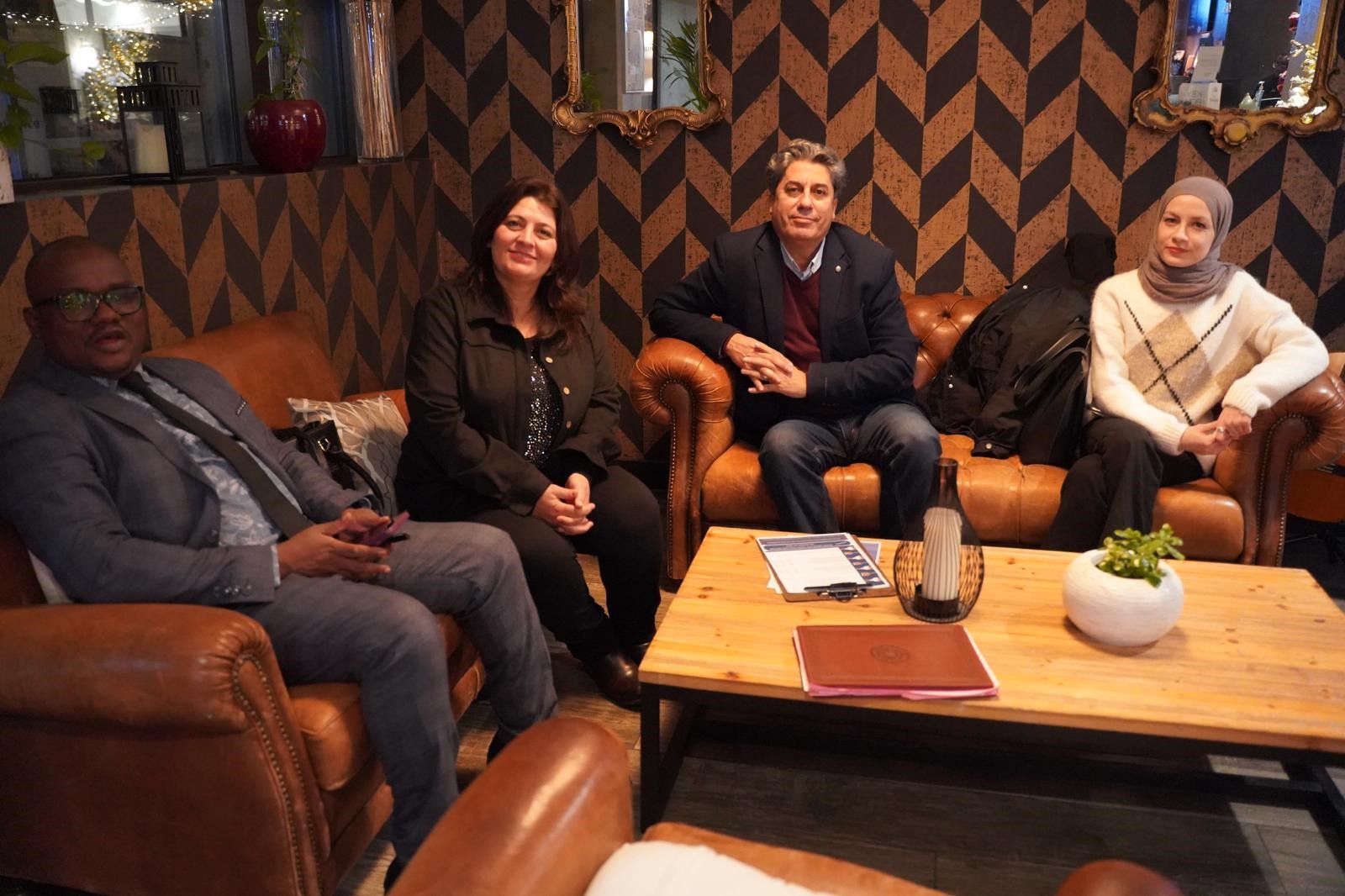

While Israel and Hamas announced on Wednesday, January 15, 2025, an agreement for a ceasefire in Gaza, accompanied by the release...
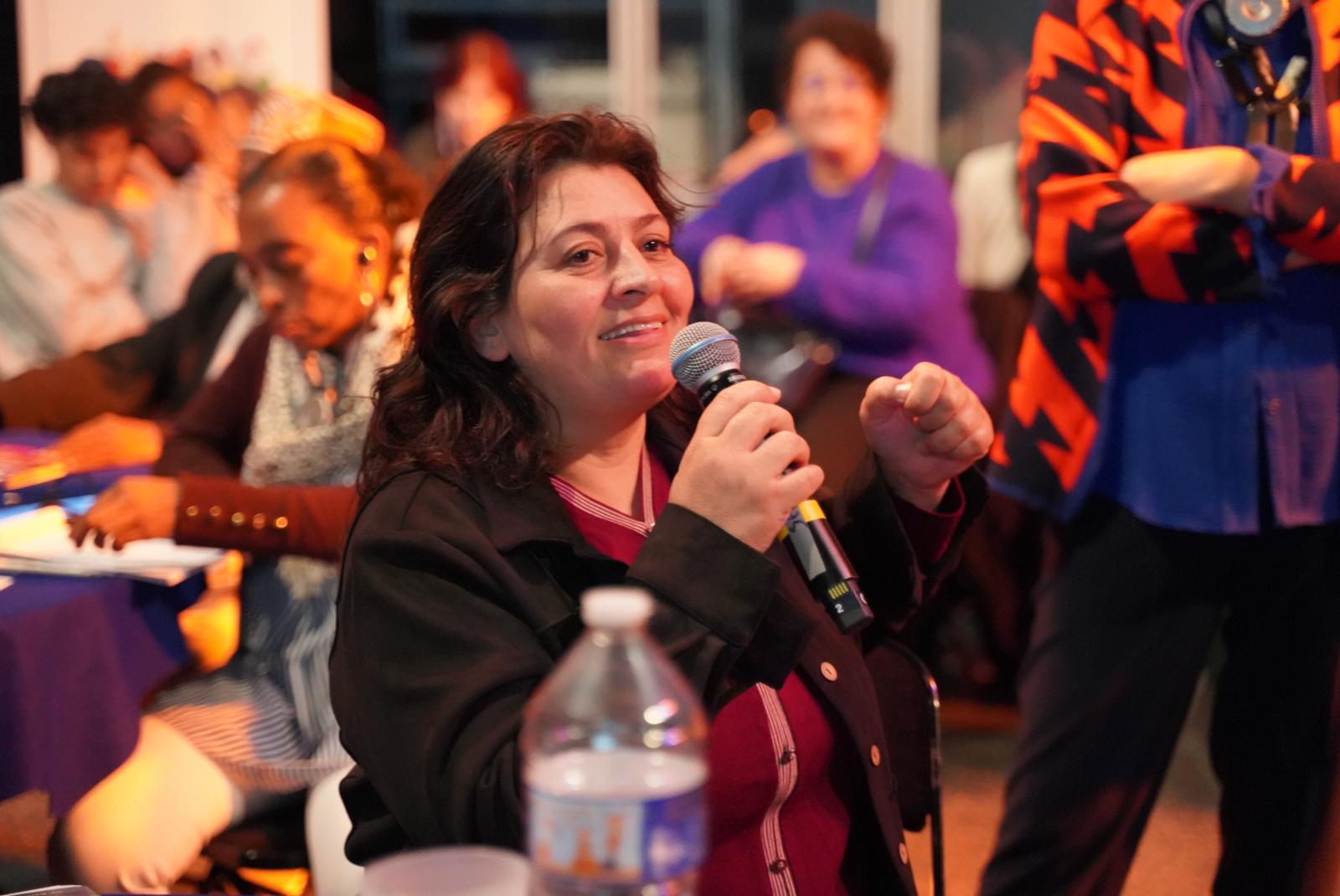

During our exchange on December 17, 2024, Mayssoun Dawoud, head of Jenin's Observatory of Violence against Women, testified
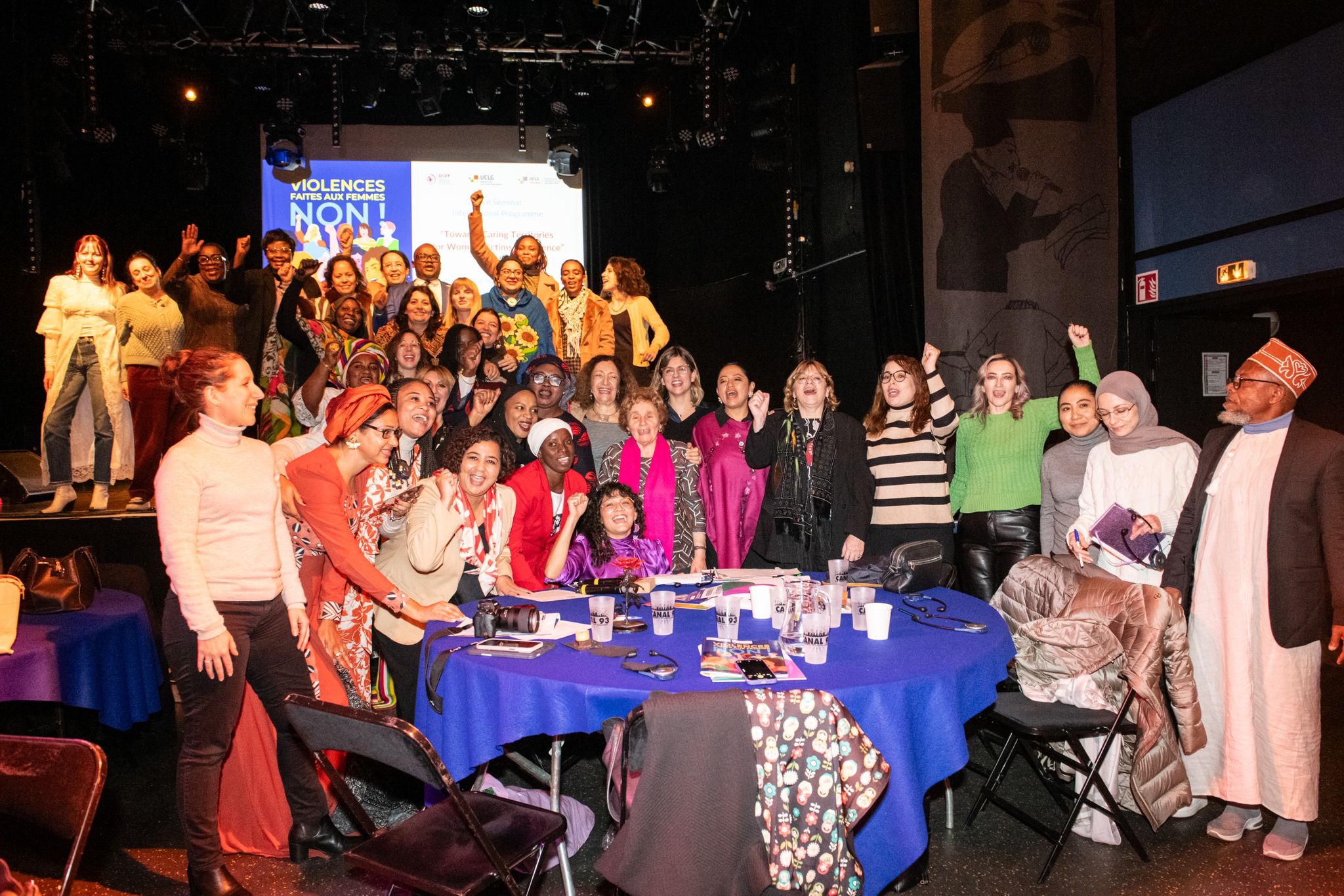

Over 50 Local Leaders and Experts Gather in Seine-Saint-Denis to Highlight the Role of Local and Regional Governments to #EndVAW
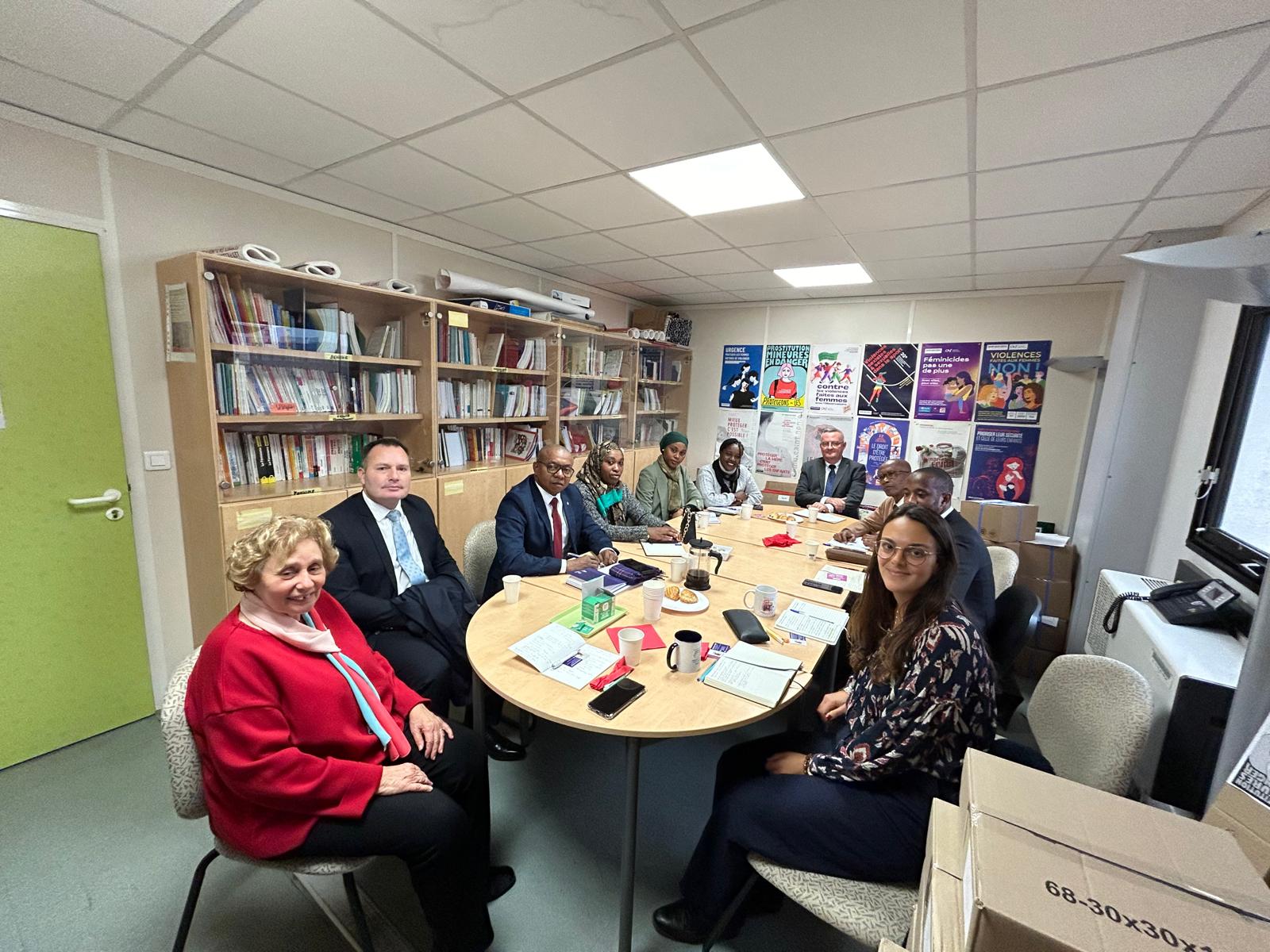

On November 15, 2024, the Observatory on violence against women welcomed a Comorian delegation composed of actors committed to...
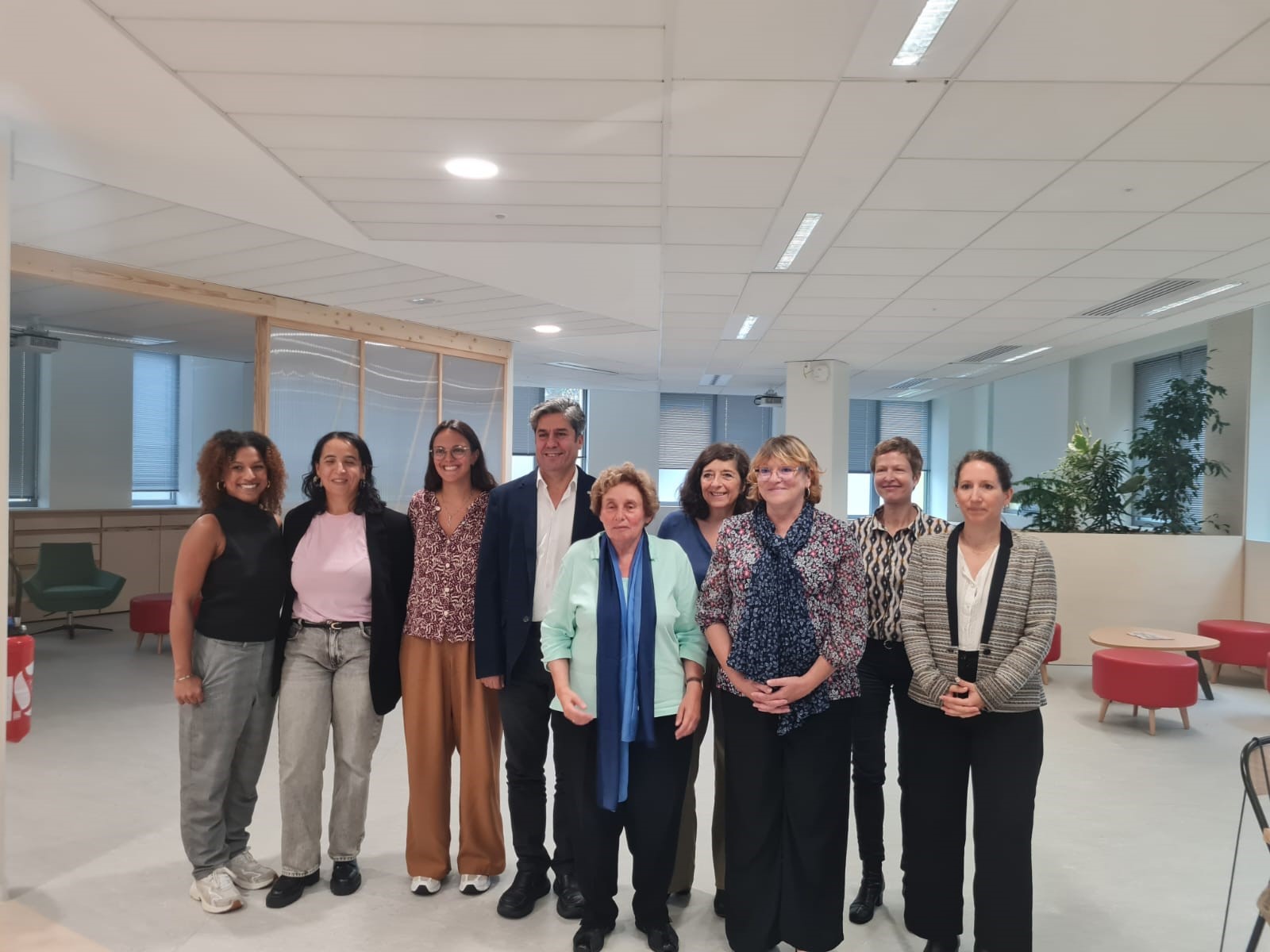

On September 5th, in the absence of the mayor of Jenin, who was held back by the Israeli offensive in his town, the mayors of...











On the occasion of the International Day of the Girl Child, celebrated on October 11, the International Observatory on Violence...


During our weekly meeting on August 8, 2024, Maysoun Dawoud, Head of the Observatory of Violence Against Women in Jenin, shared...




As part of its program "Territories that protect women victims of violence" the International Observatory of Violence Against...


As part of the project "Territories that Protect Women Victims of Violence," the International Observatory on Violence Against...
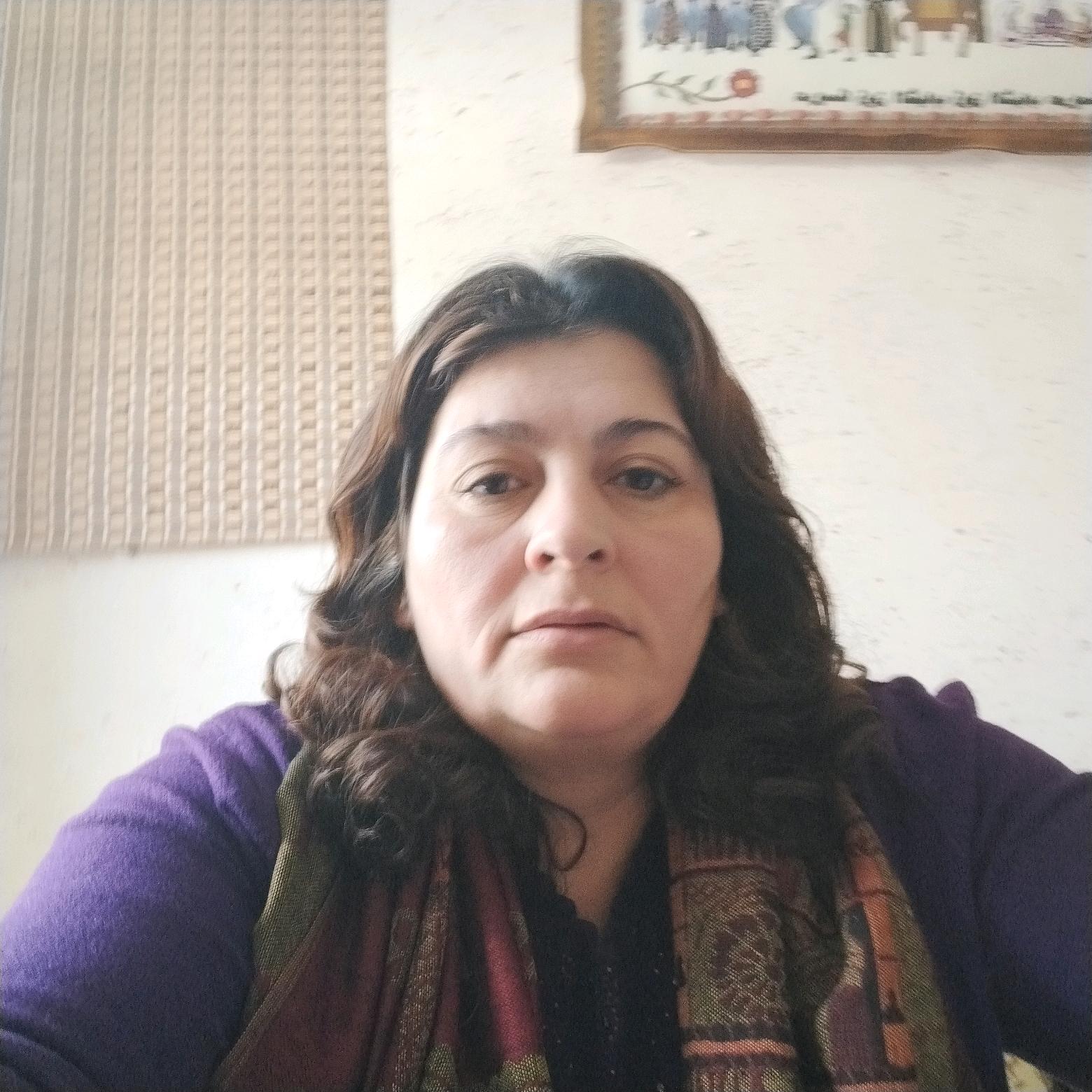


During our weekly meeting on July 9, 2024, Mayssoun Dawoud, Head of the Observatory of Violence Against Women in Jenine, shared...
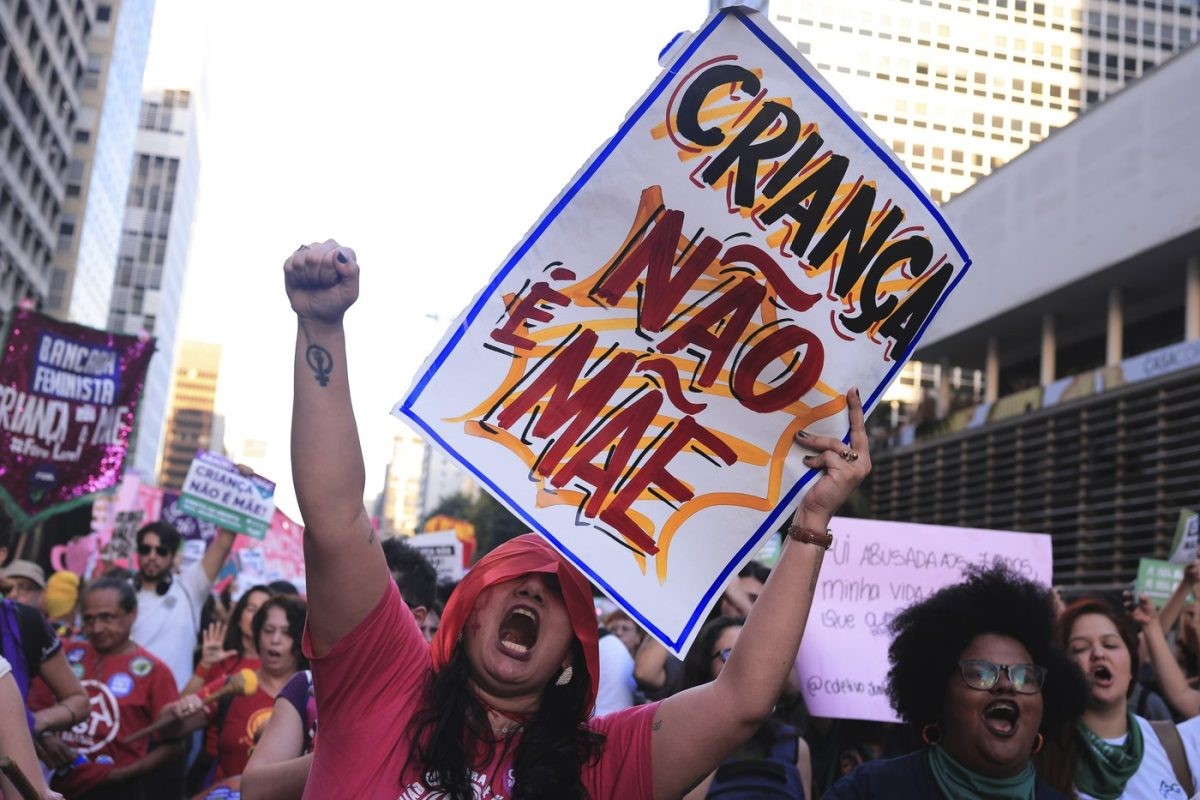

Thousands of people protested on Thursday, June 13, in several cities across Brazil against a bill being examined by Congress...
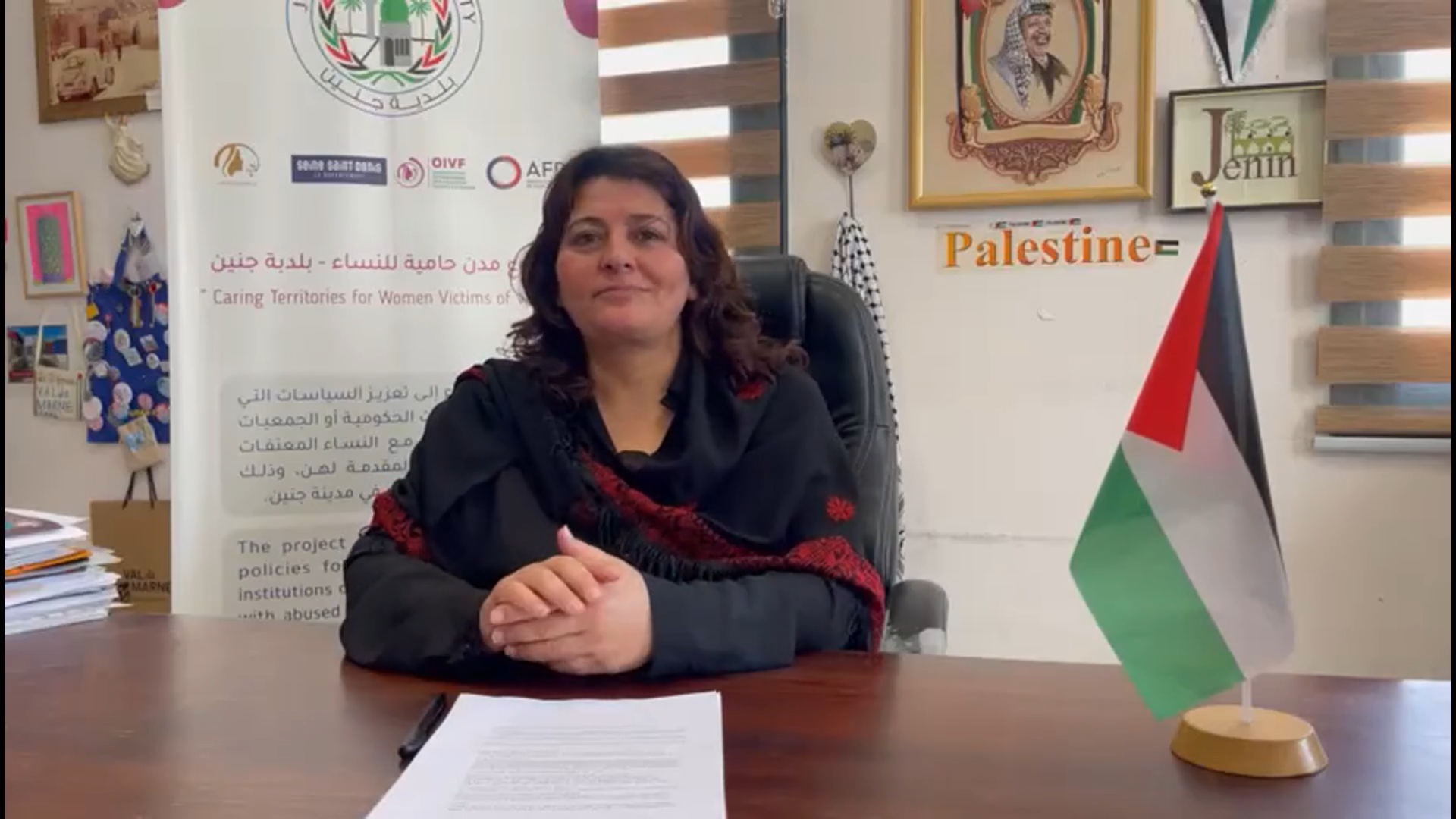


During our weekly meeting on May 30, 2024, Mayssoun Dawoud, Head of the Observatory of Violence Against Women in Jenin, shared...
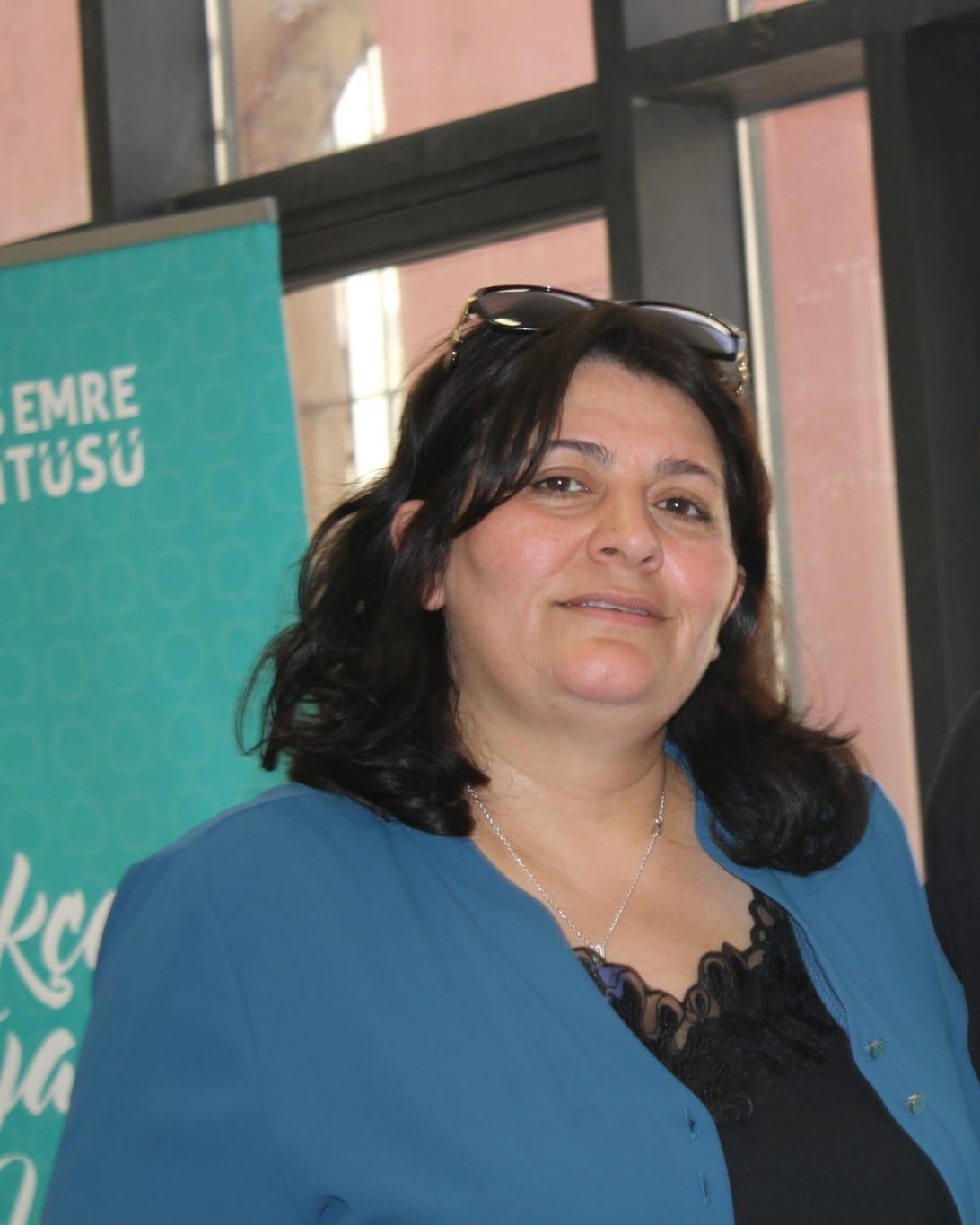



During our weekly meeting on May 16, Mayssoun Dawoud, Head of the Observatory for Violence Against Women in Jenin, shared...
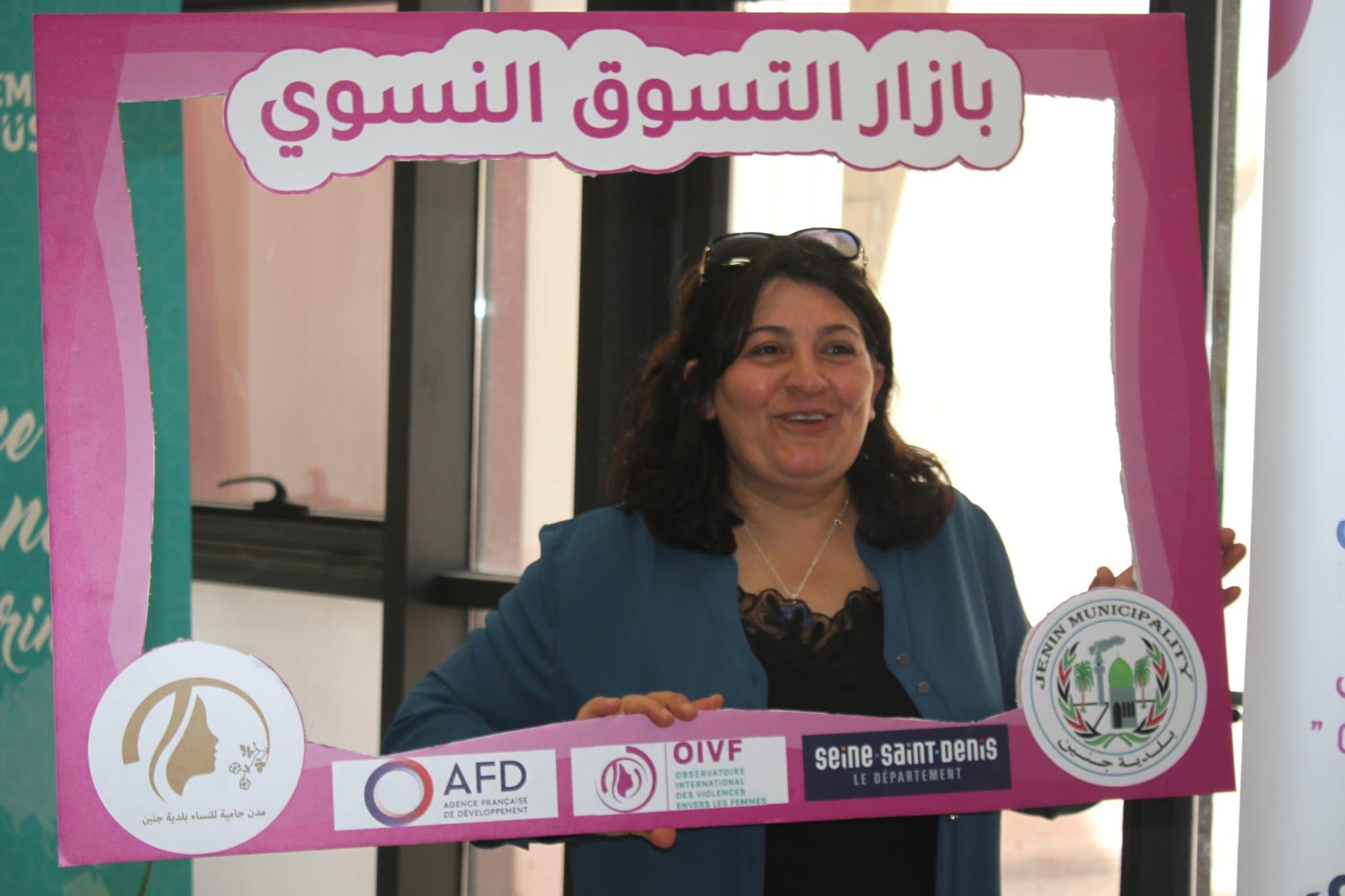


During our last two weekly meetings, Mayssoun Dawoud, Head of the Women's Violence Observatory in Jenin, shared information about...


On the occasion of International Labour Day, it is important to highlight initiatives aimed at promoting the economic empowerment...



During our weekly video conference on 4 April, we shared information on the situation in Jenin. Maysoun Dawoud, Head of the Jenin...
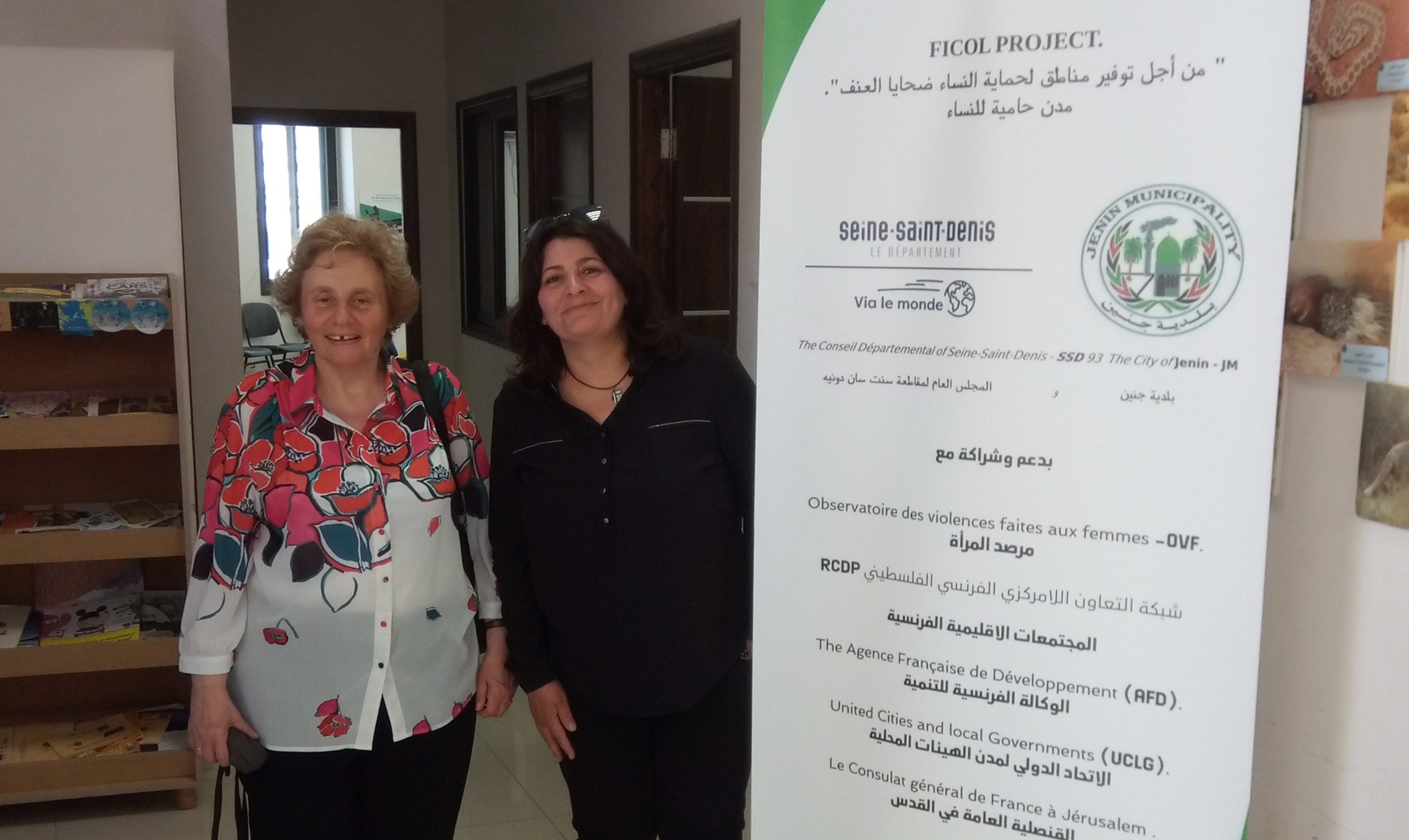

As part of the project “Territories protecting women victims of violence”, the International Observatory on Violence against...
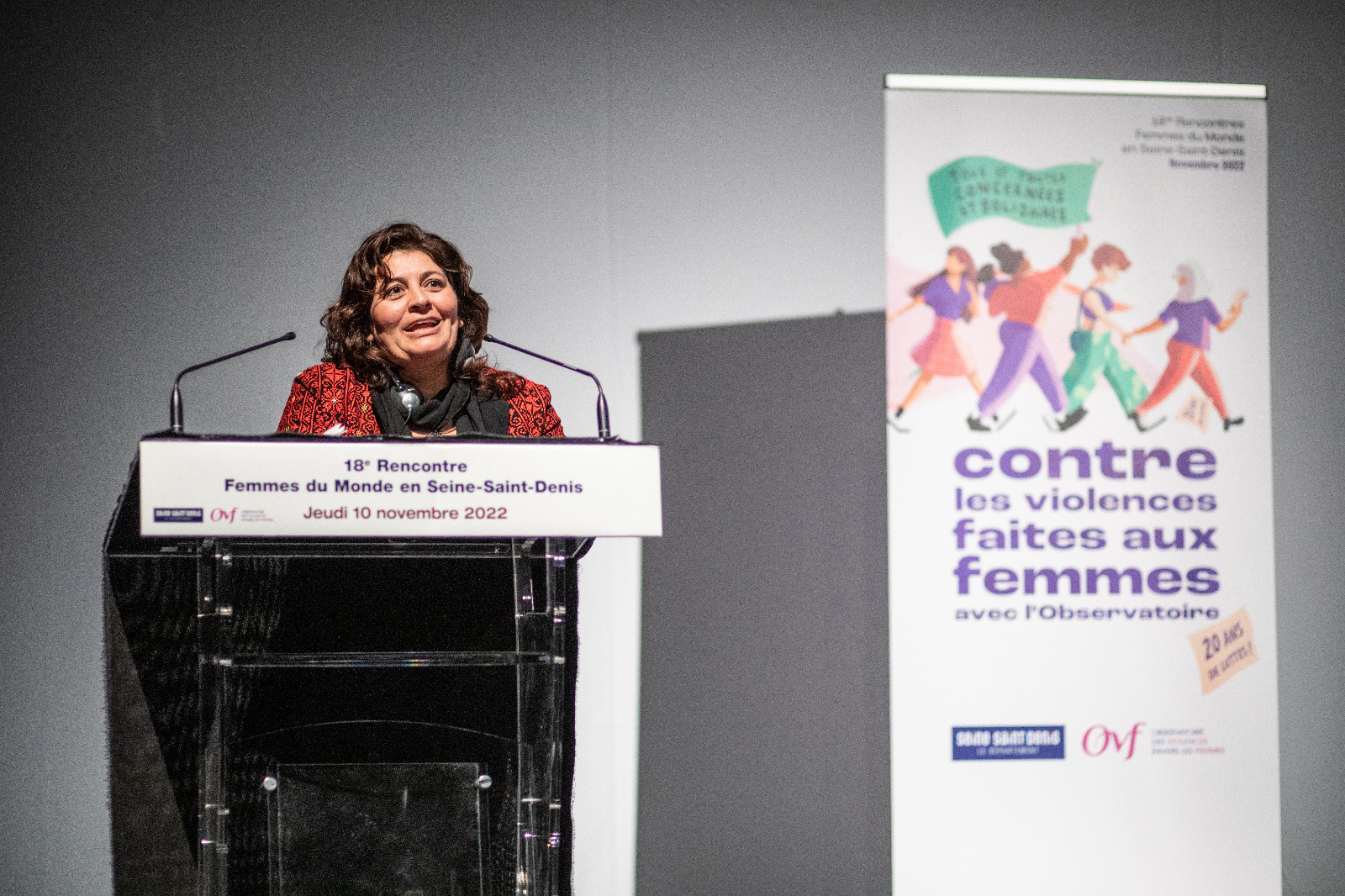

During our weekly video call on March 21st, Mayssoun Dawoud, Head of the Observatory for Violence Against Women in Djenin, shared...




During a telephone conversation on March 13, we received alarming information about the situation in Djénine. Mayssoun Dawoud,...


On this March 8, 2024, we would like to express our solidarity with all women and girls who are victims of violence in times of...



A look back at the seminar entitled "Territories protecting women victims of violence", organised by the International...




During our weekly video conference meeting with Palestine on February 8th, Mayssoun Dawoud, Head of the Observatory for Violence...











The International Observatory on Violence against Women is committed to combating female genital mutilation.
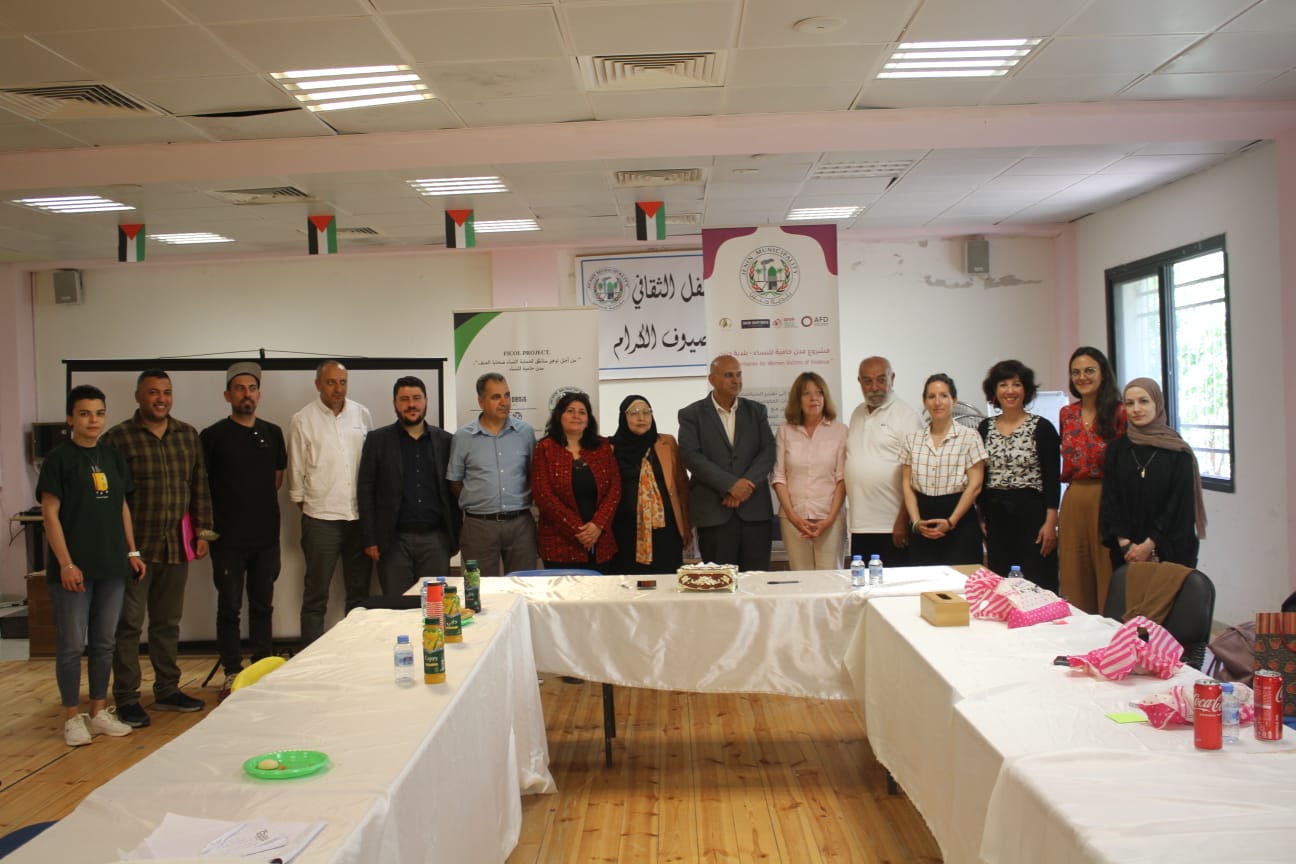

As part of the project "Territories protecting women victims of violence," the team from the Observatory of Violence against...



Within the framework of the project "Territories protecting women victims of violence", the city of Jenin, is the target of...
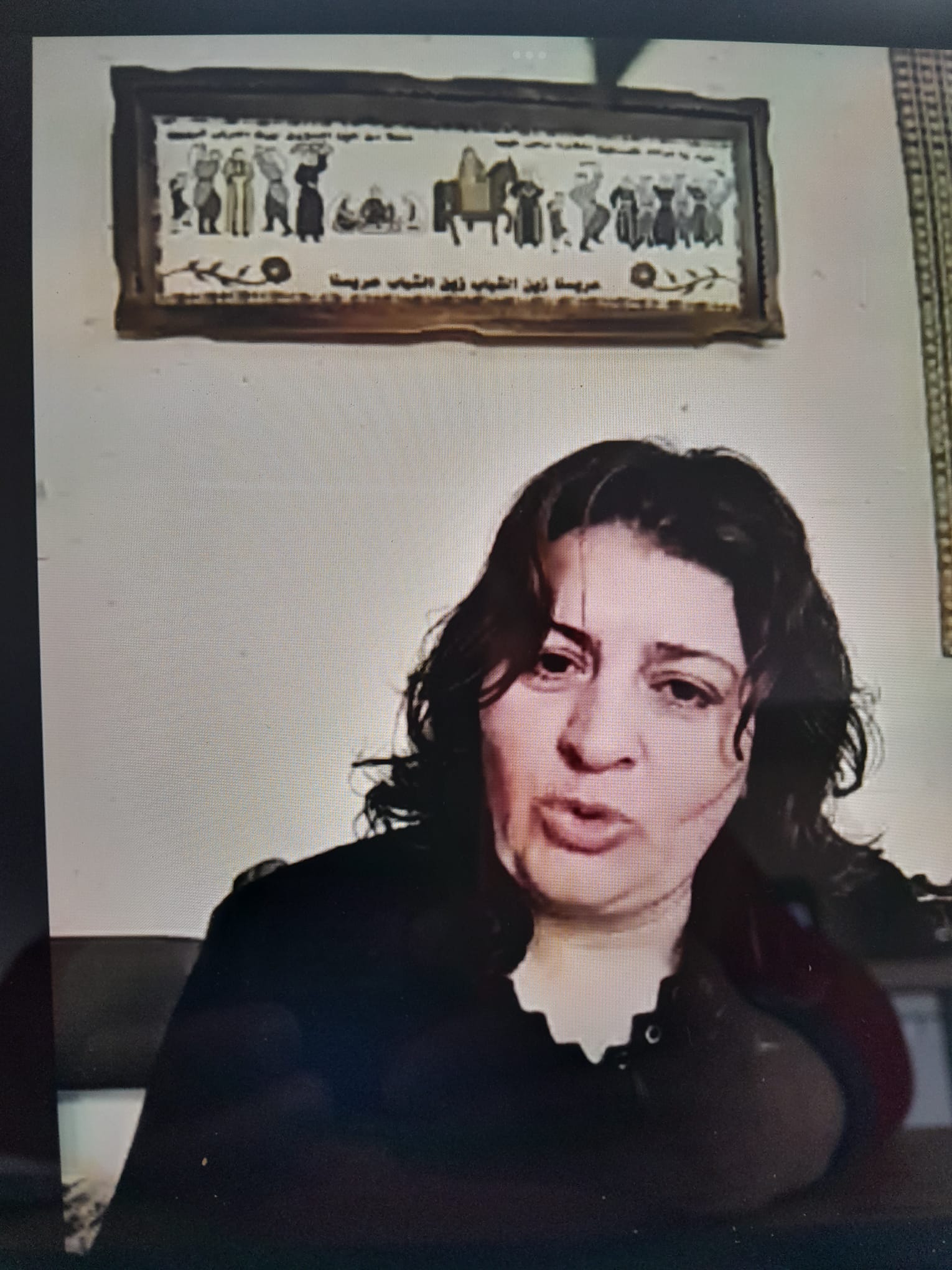

As part of the project "Territories protecting women victims of violence", the team of the International Observatory on violence...











As part of the project "Territories protecting women victims of violence", the International Observatory on violence against...



As part of the project "Territories protecting women victims of violence", the International Observatory on Violence against...


From November 8 to 17, the Observatory of Violence against Women hosted the 19th edition of Femmes du Monde in Seine-Saint-Denis....


In November 2023, Yadira Cortés Castillo, a Mexican activist and guest speaker at the 19th ”Femmes du Monde” in...
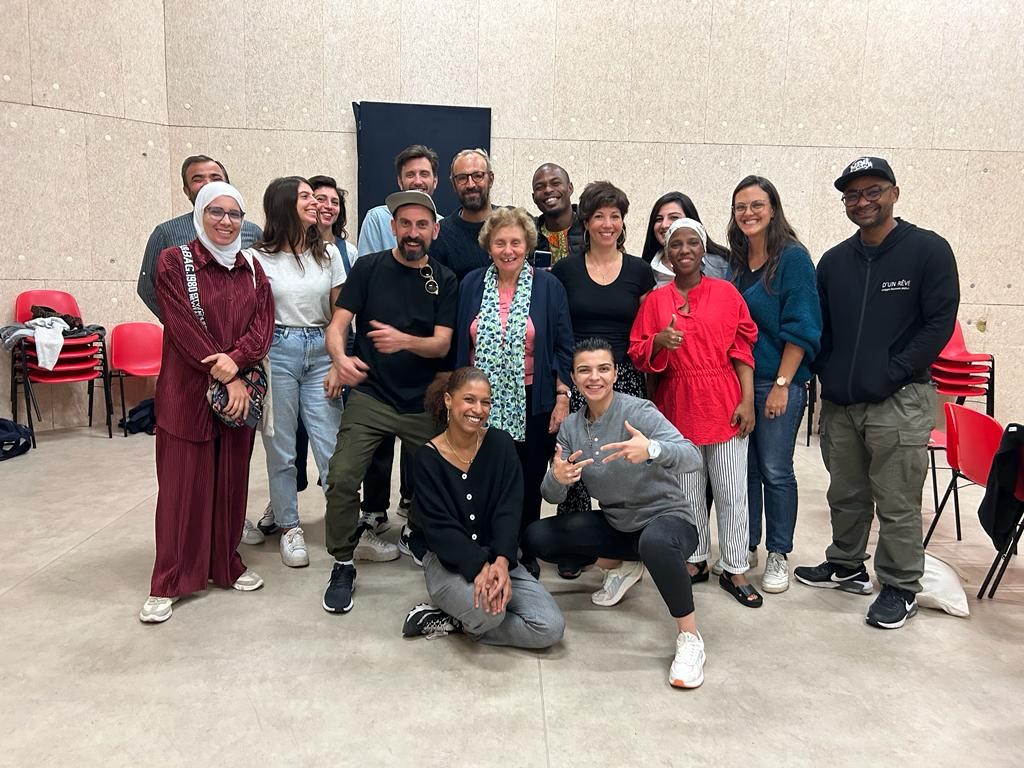

In September 2023, a delegation of facilitators from Djénine and Ngazidja came to Seine-Saint-Denis to participate in training...
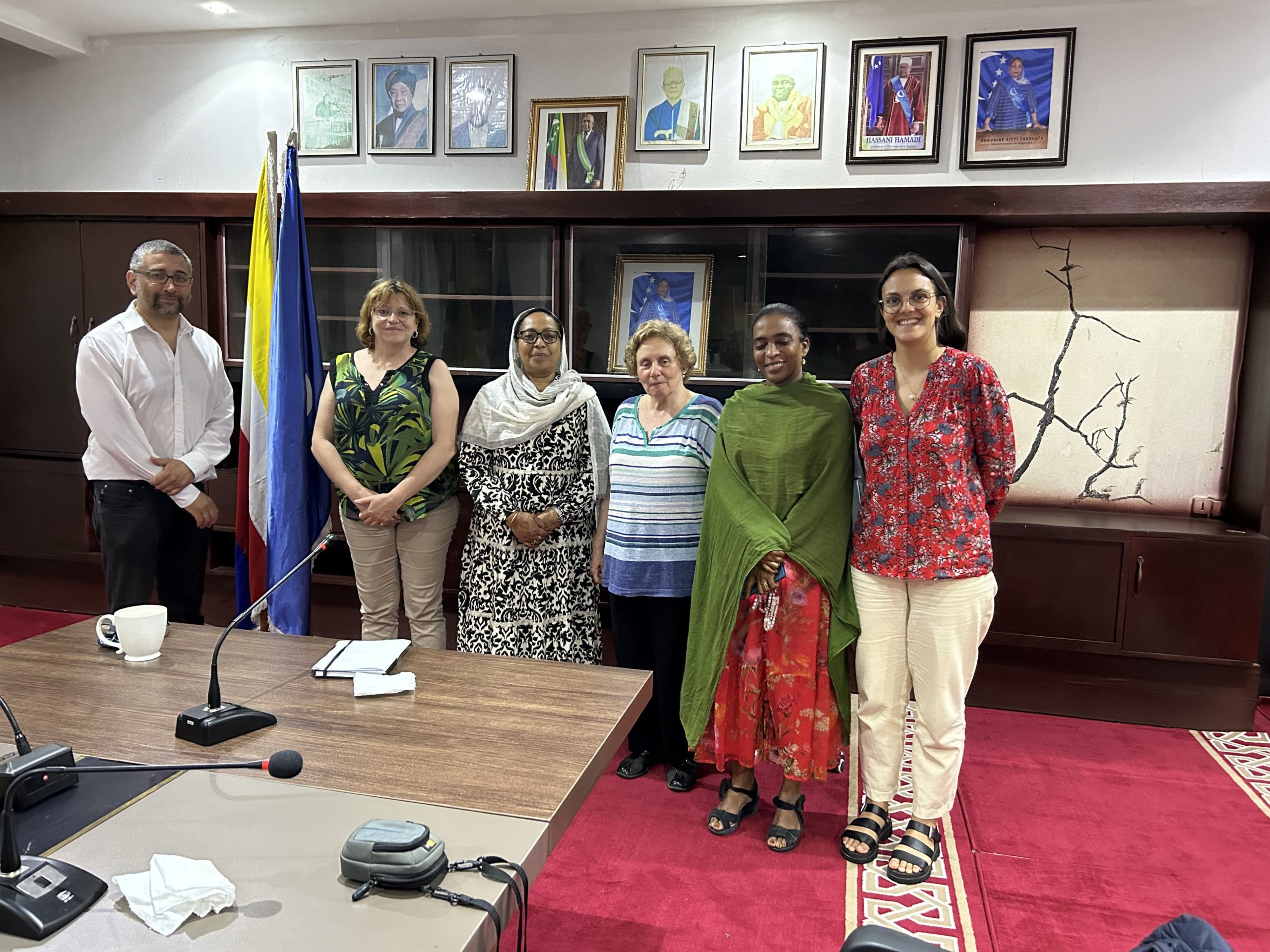

In June 2023, a delegation from Seine-Saint-Denis travelled for the second time to Ngazidja (Comoros), as part of the "...


In May 2023, a delegation from Seine-Saint-Denis visited the Palestinian Territories as part of the international programme...
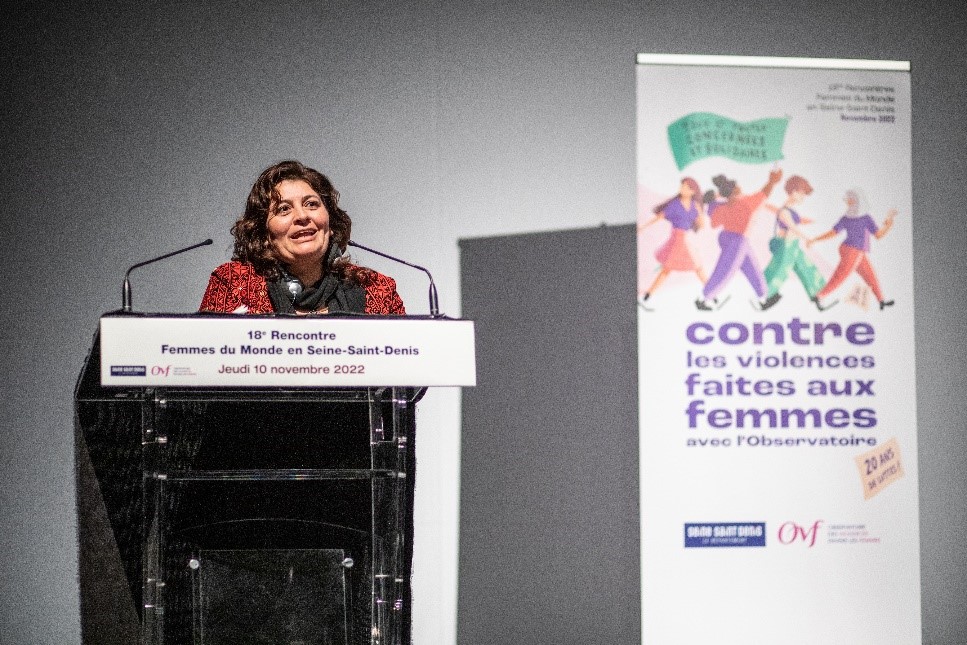

In the framework of the project “Territories protecting women victims of violence”, the International Observatory on Violence...
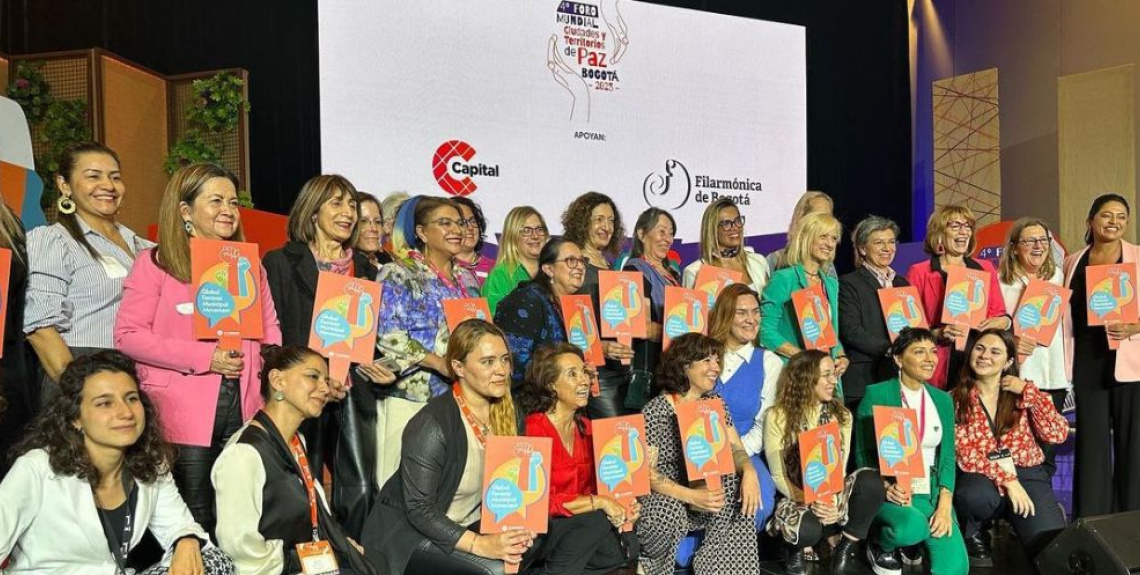

The coordinator of the International Observatory on Violence Against Women attended the 4th Forum of Cities and Territories for...




This is the fifth edition of the call for projects Agir IN Seine-Saint-Denis. This year, a new category of actions dedicated to...











To mark the 75th anniversary of the Universal Declaration of Human Rights, we are proud to join the Social Inclusion, Human...
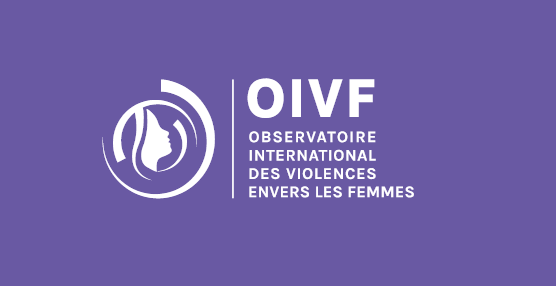

This day of mobilisation throughout the world is an opportunity to reflect on the situation of women, the progress made but also...
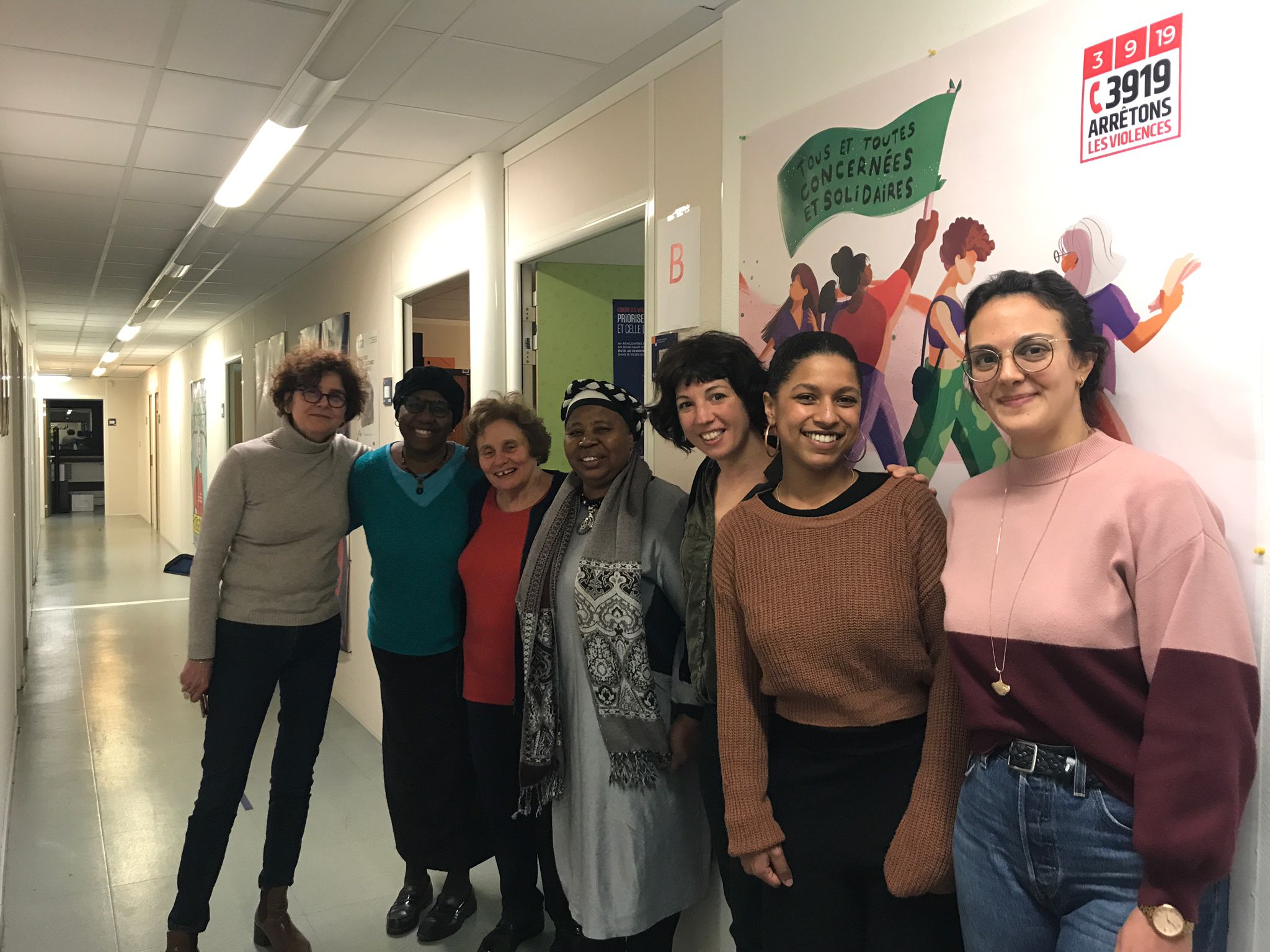

A look back at the meeting between the International Observatory on Violence against Women and Mrs. Bintou Founé Samaké...
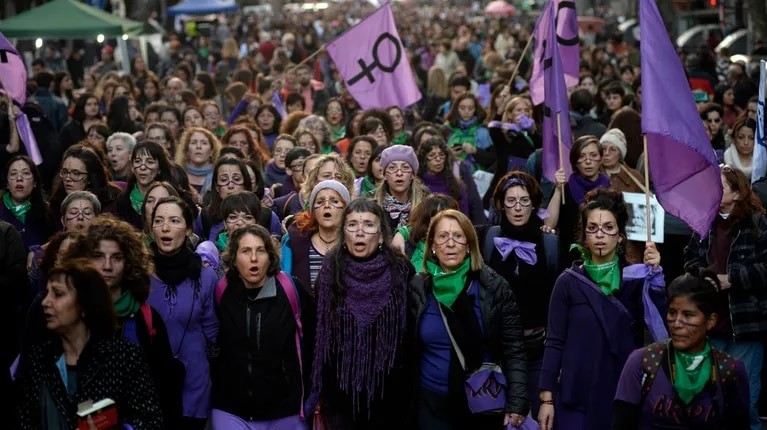

On the occasion of 8 March, it is essential to highlight the mobilisation of women in social movements, who are fighting to put...
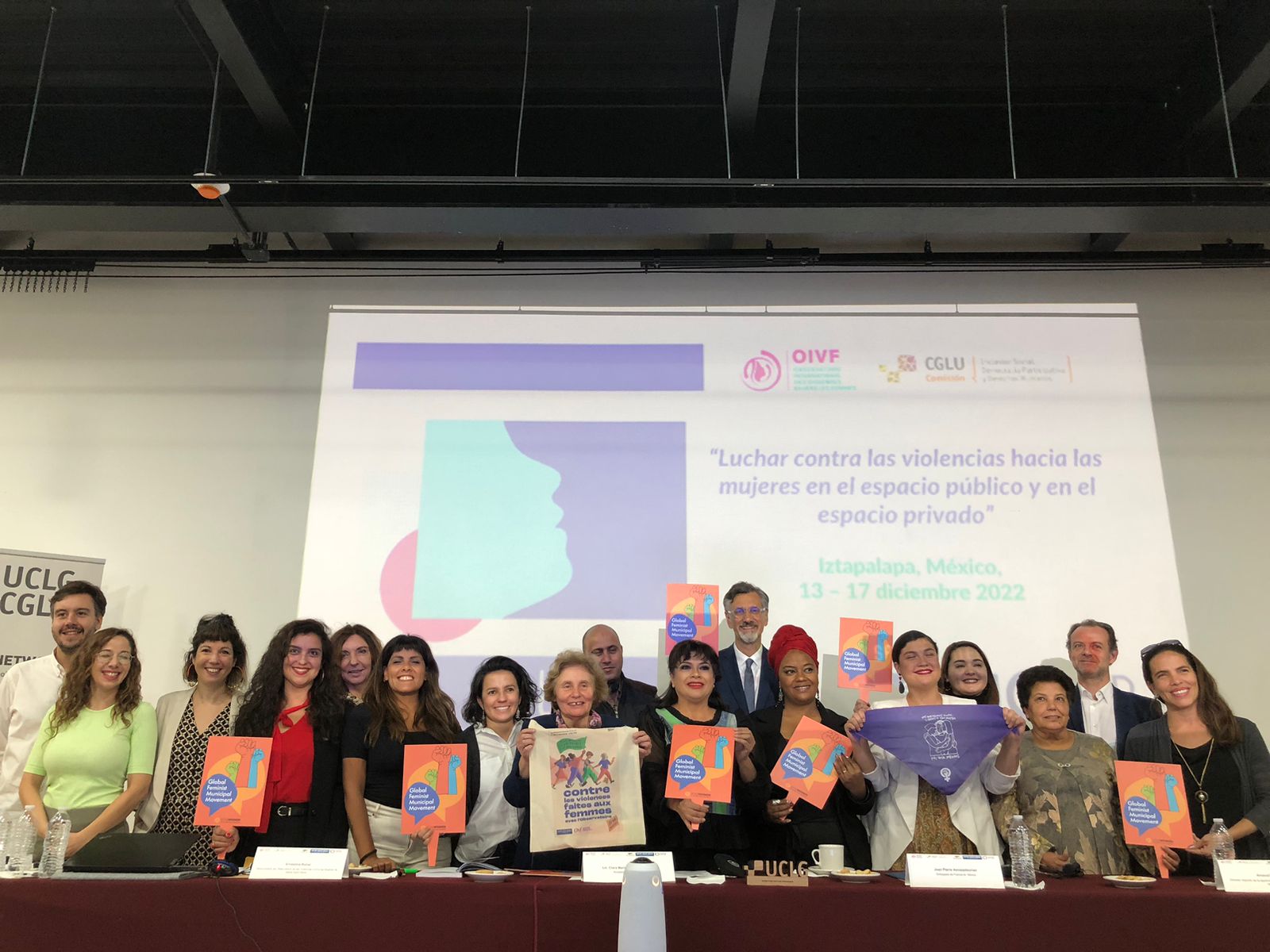

Return on the seminar "Fighting violence against women in public and private spaces" organised by the International Observatory...











February 6 marks the International Day of Zero Tolerance to Female Genital Mutilation.


From November 7 to 12, the Observatory of Violence against Women hosted the 18th edition of Femmes du Monde in Seine Saint Denis,...
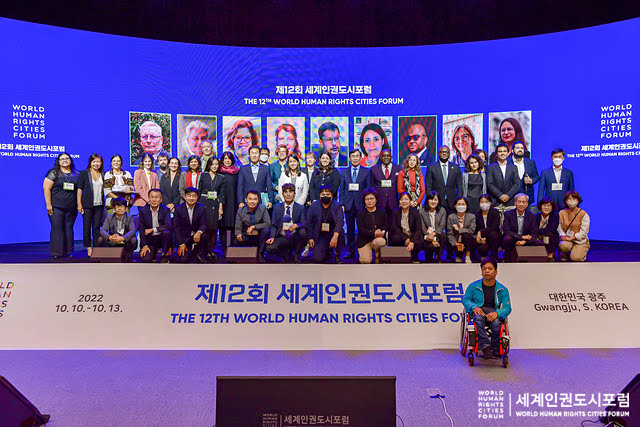

From 9 to 14 October 2022, the International Observatory on Violence against Women was in South Korea to participate in the World...











In the pursuit of the International Observatory program "Caring territories for women victims of violence", our delegation went...











On June 22, 2022, the Department of Seine-Saint-Denis and UGCL co-hosted a webinar on "Local and Regional Governments against...











Following the development of the international program "Territories caring for women victims of violence", a delegation composed...
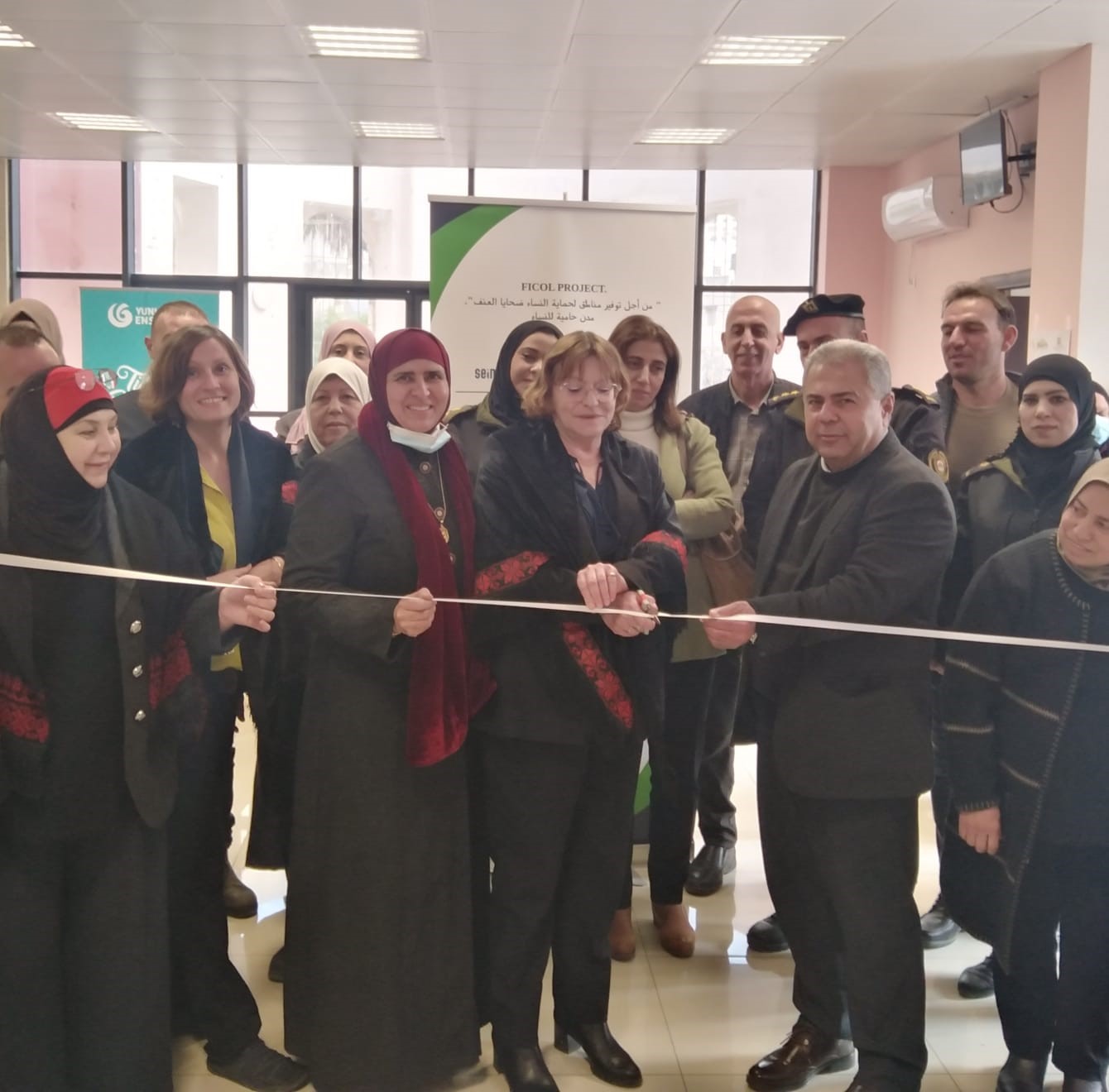

In February 2022, the city of Jenin (Palestine) inaugurate the office of the Observatory of Violence against Women.
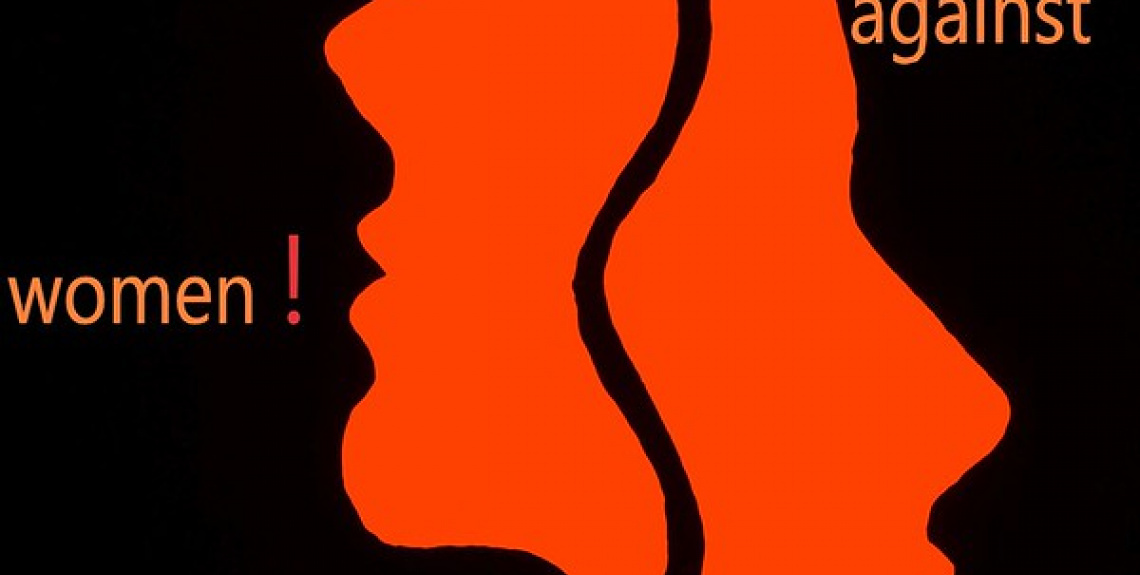

On this International Women’s Day, we would like to express our solidarity with all these women and their children.
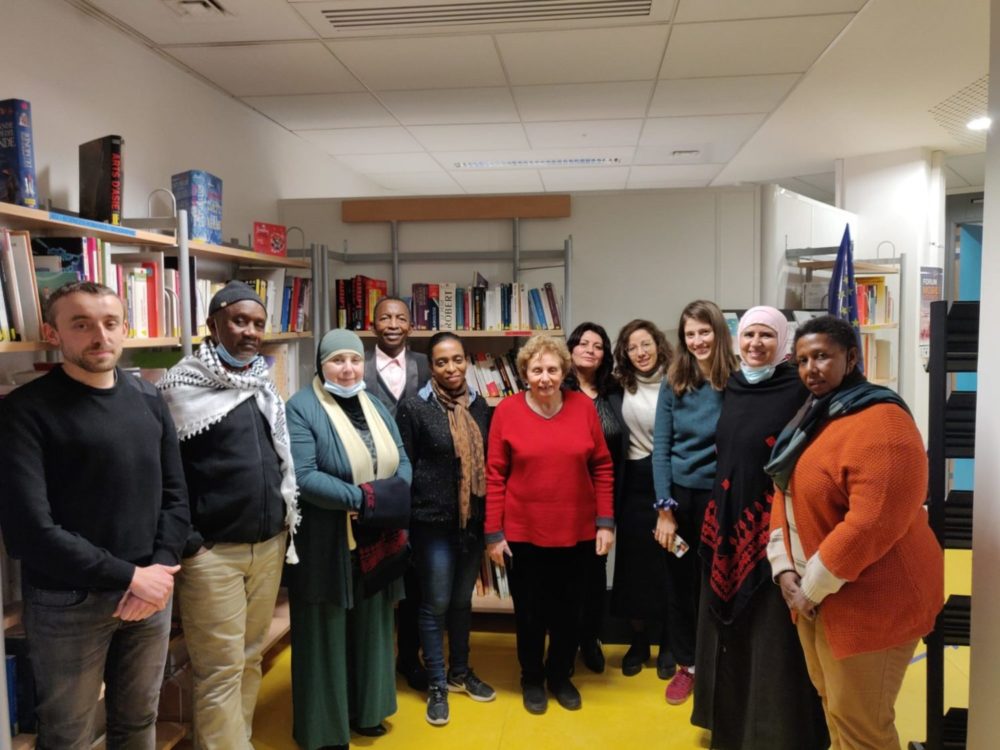

Meeting between the Observatory of violence against women of Seine Saint Denis, the island of Ngazidja (Comoros) and the...
No results were found for your search
Join the network
Elected officials, professionals and associations, international networks and organizations, researchers: we need you.






